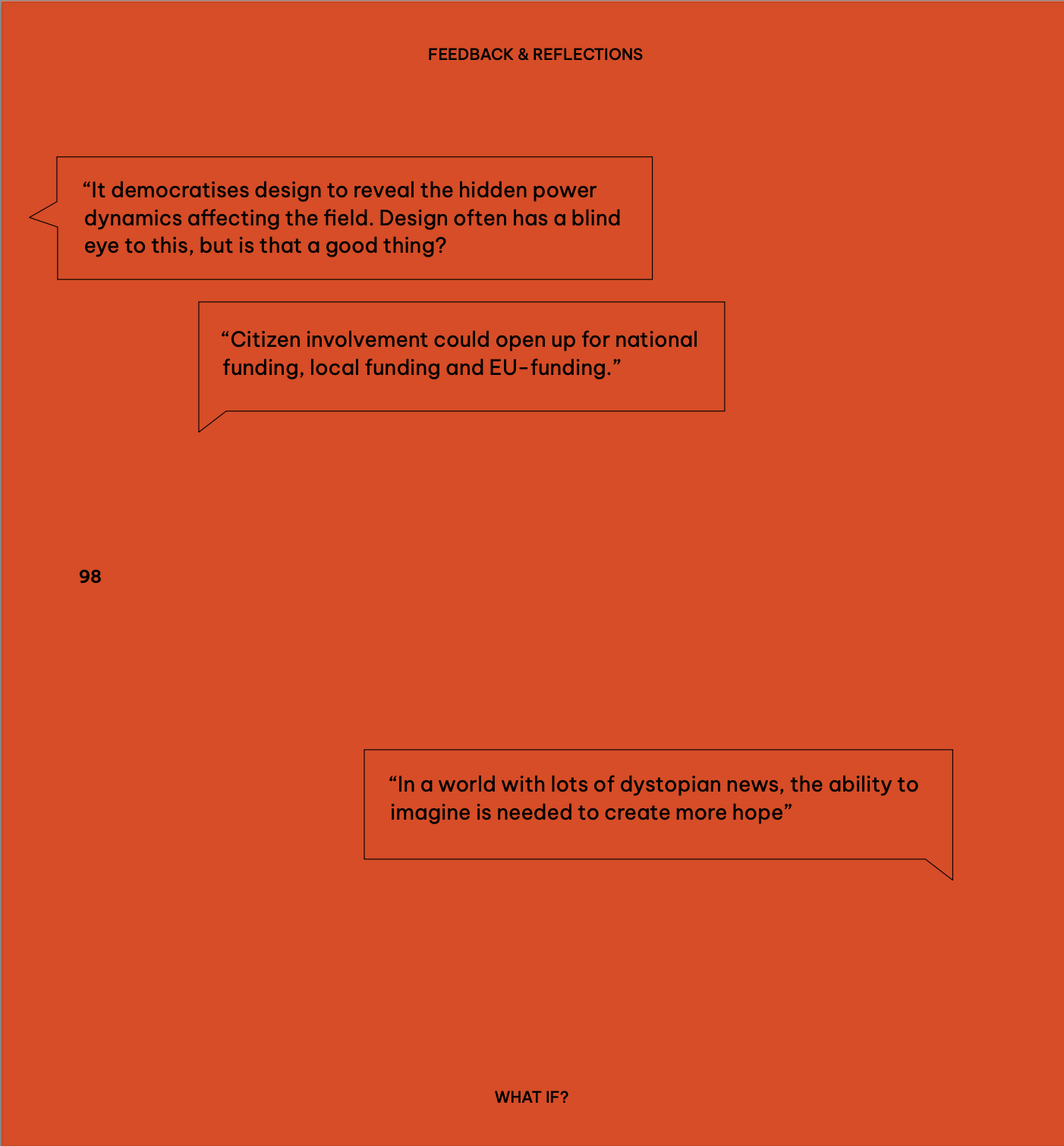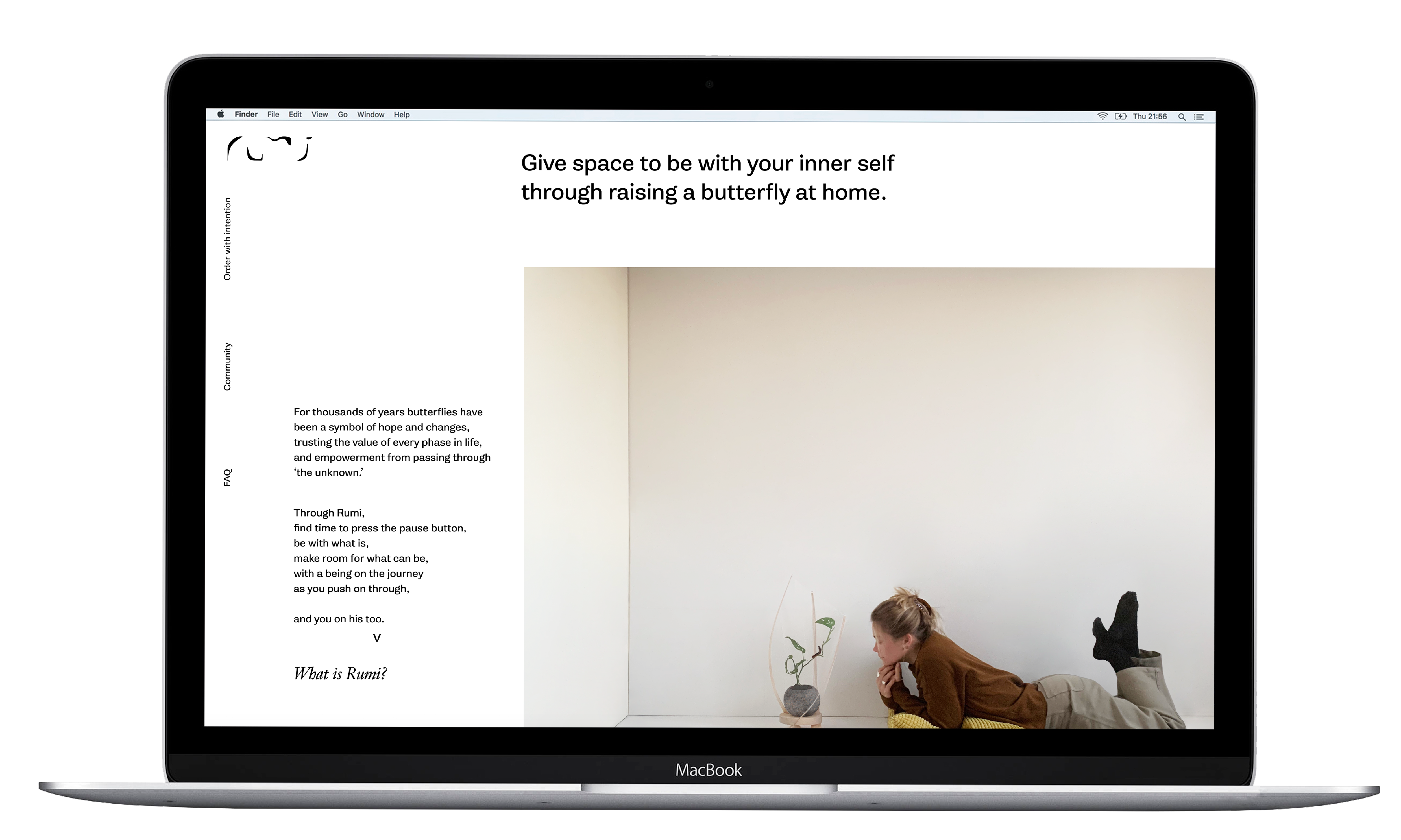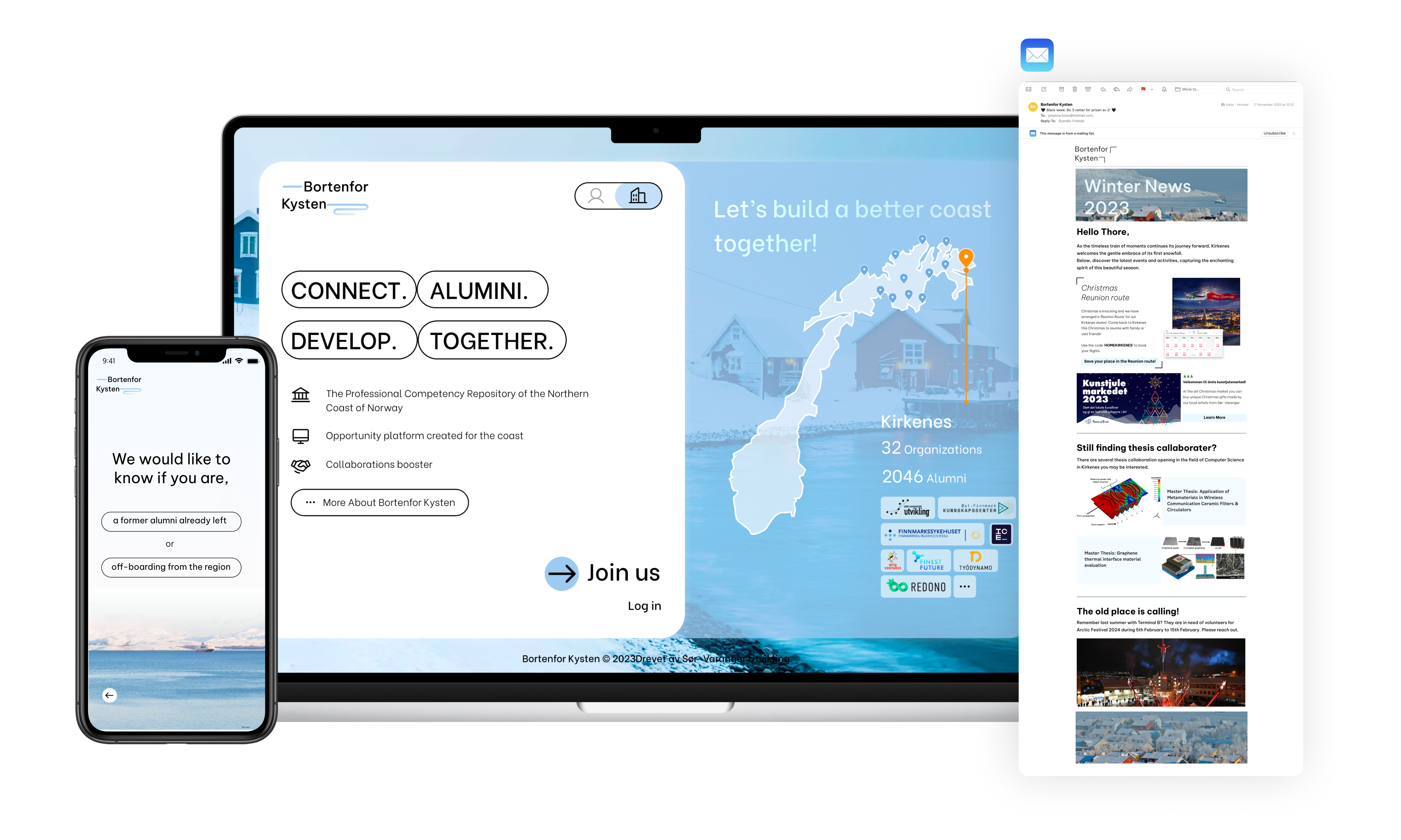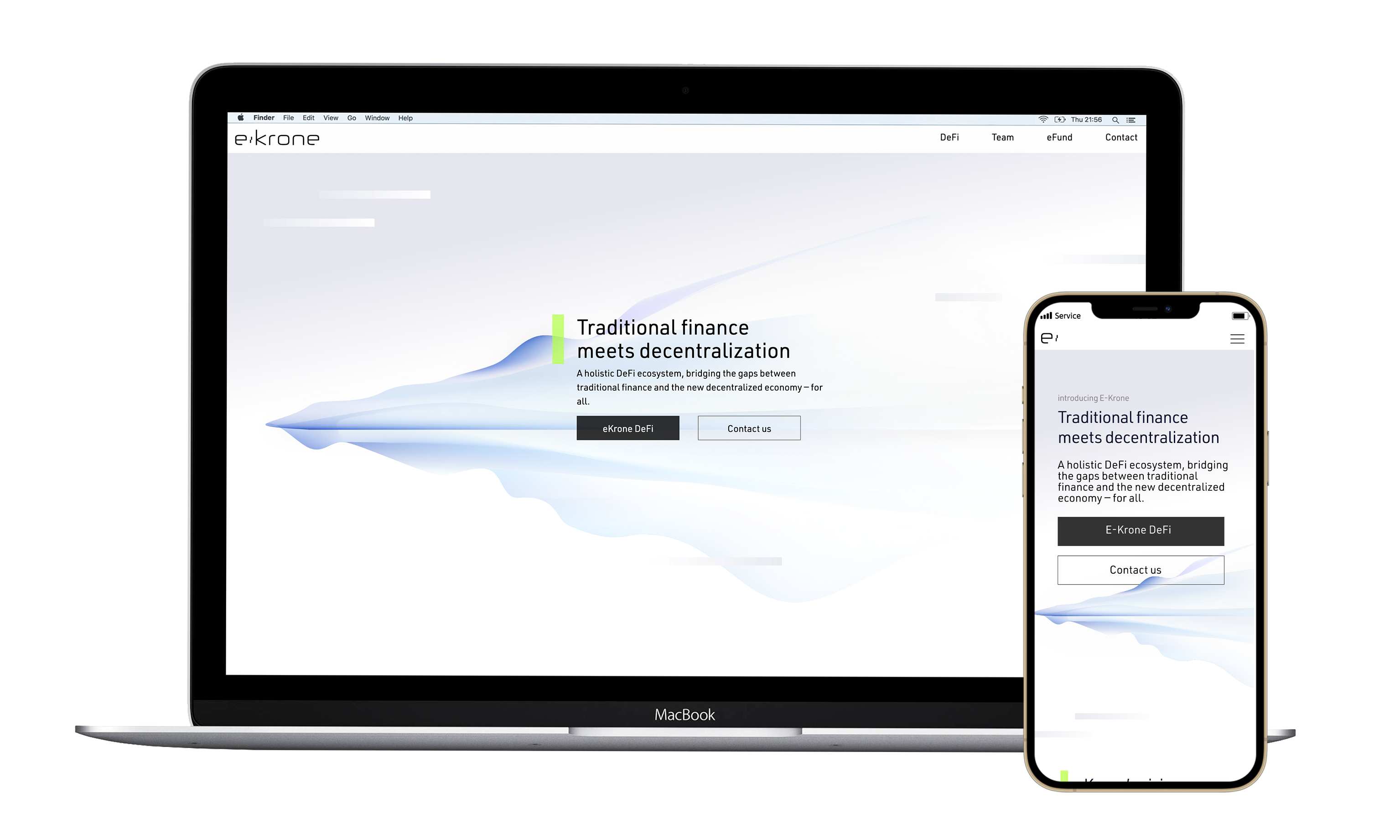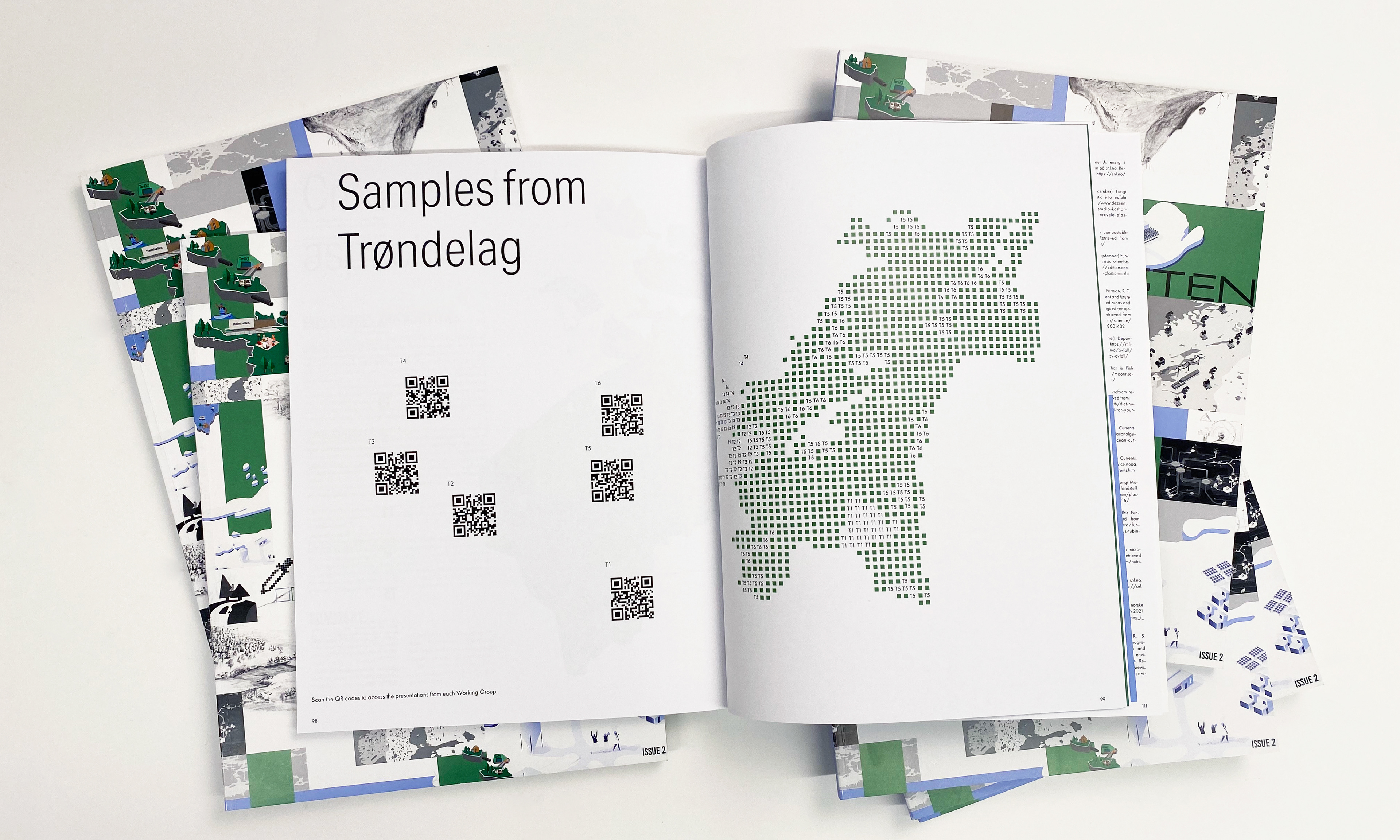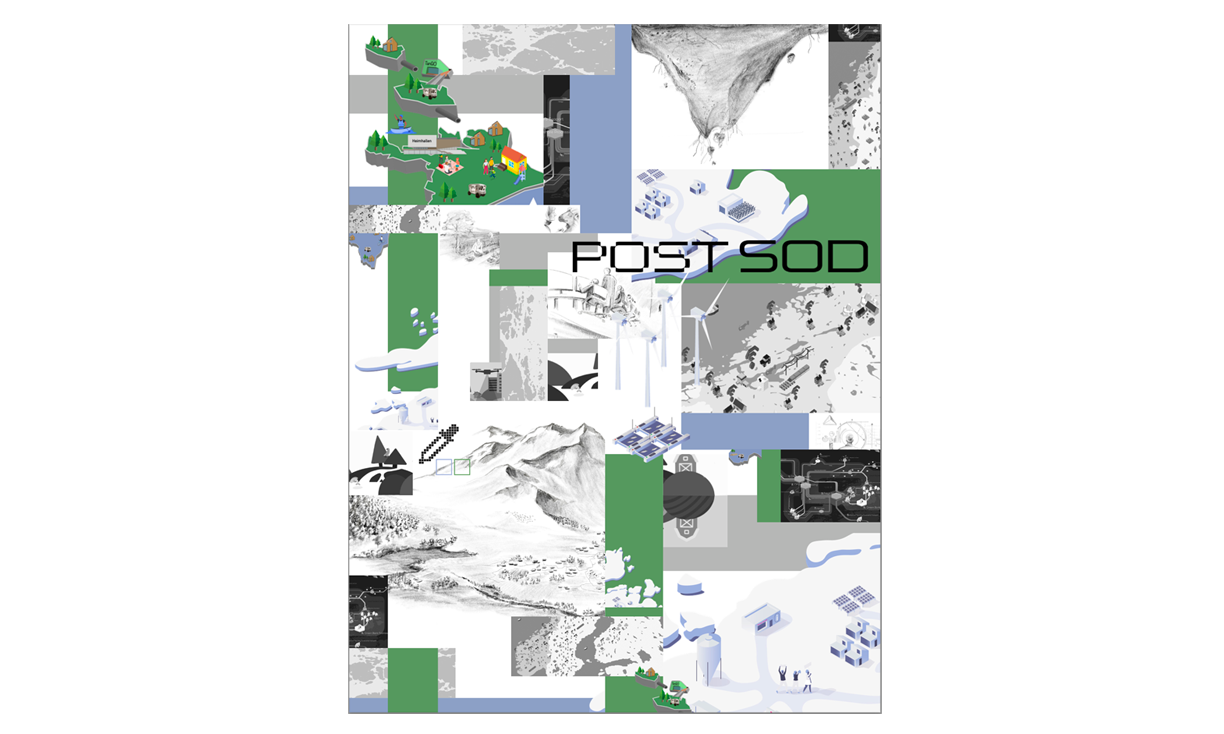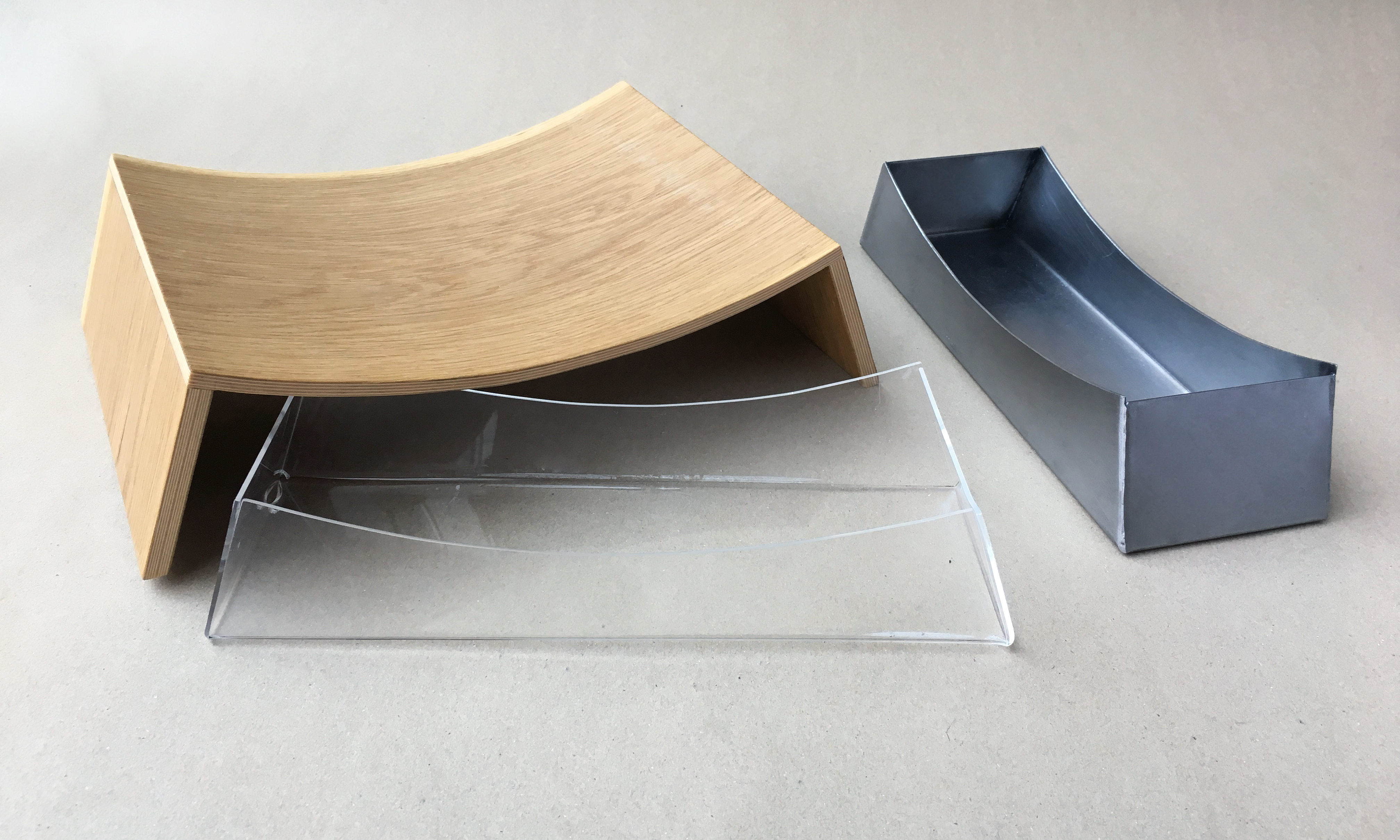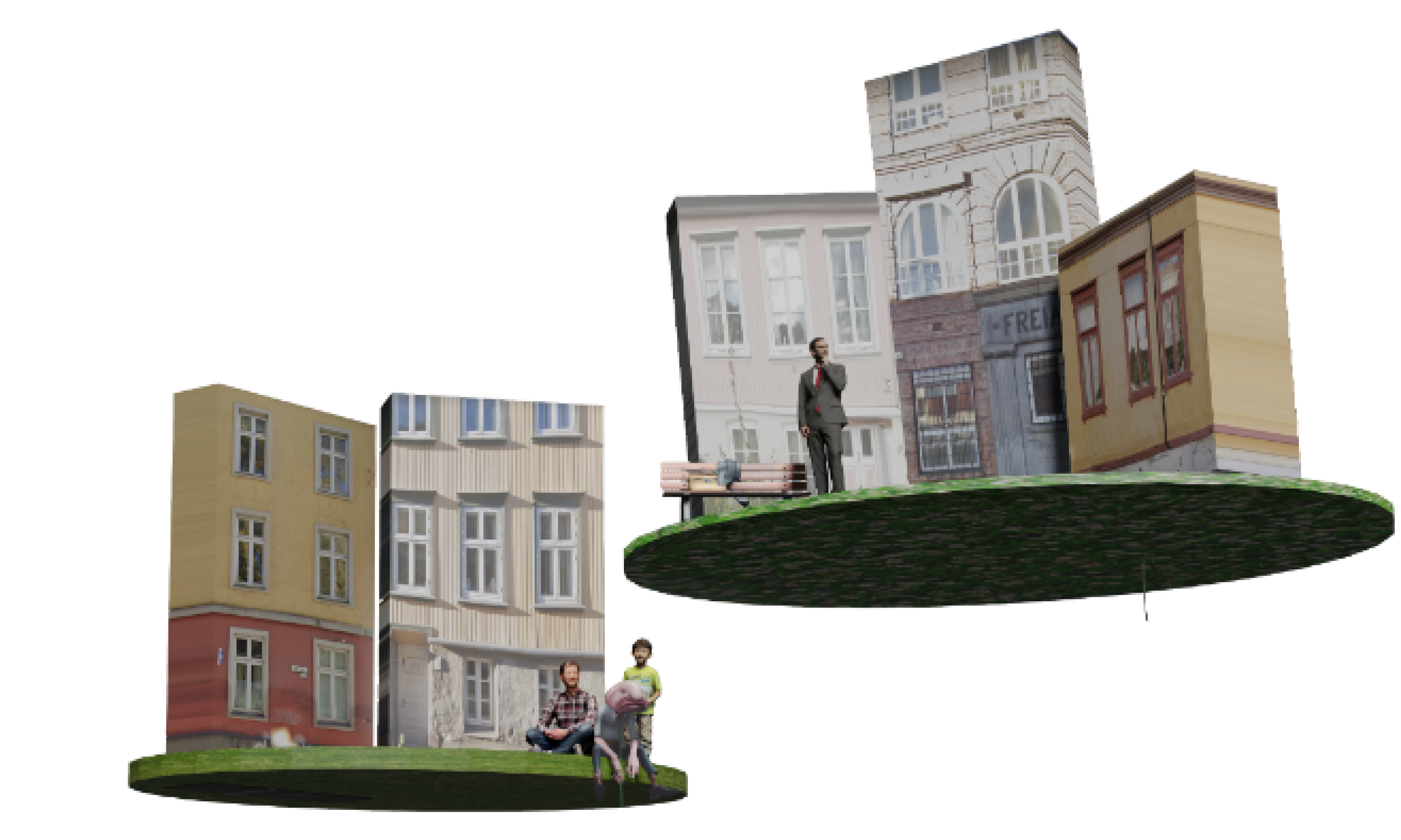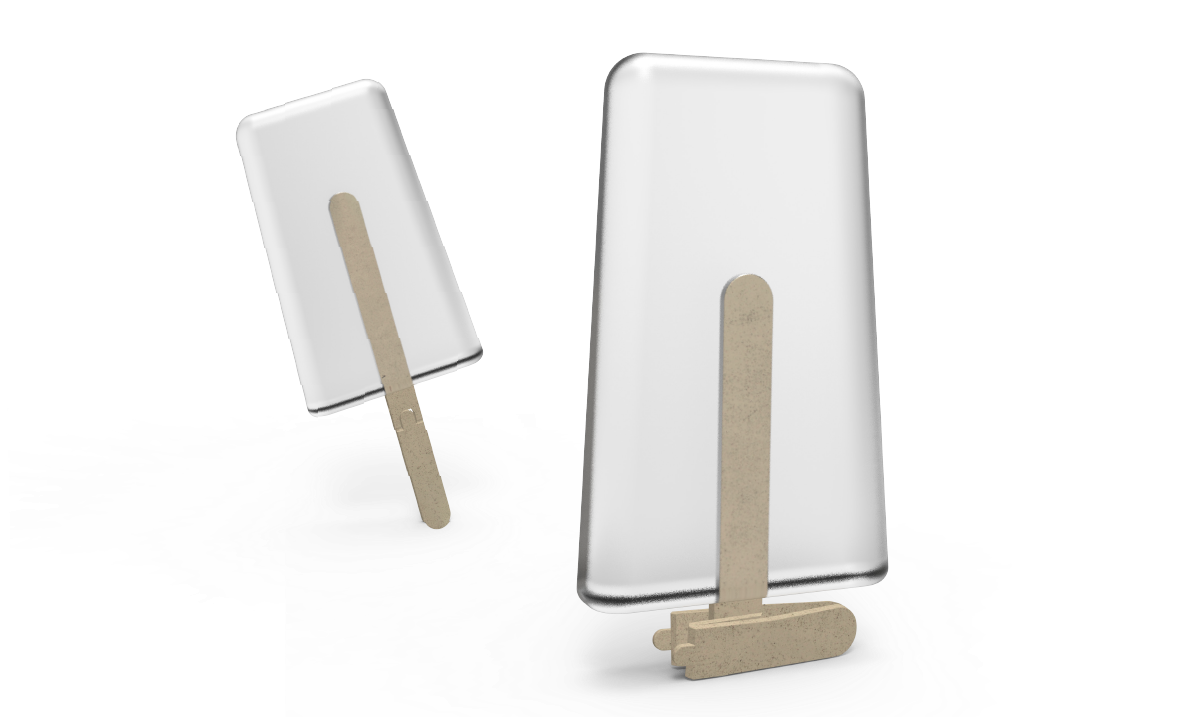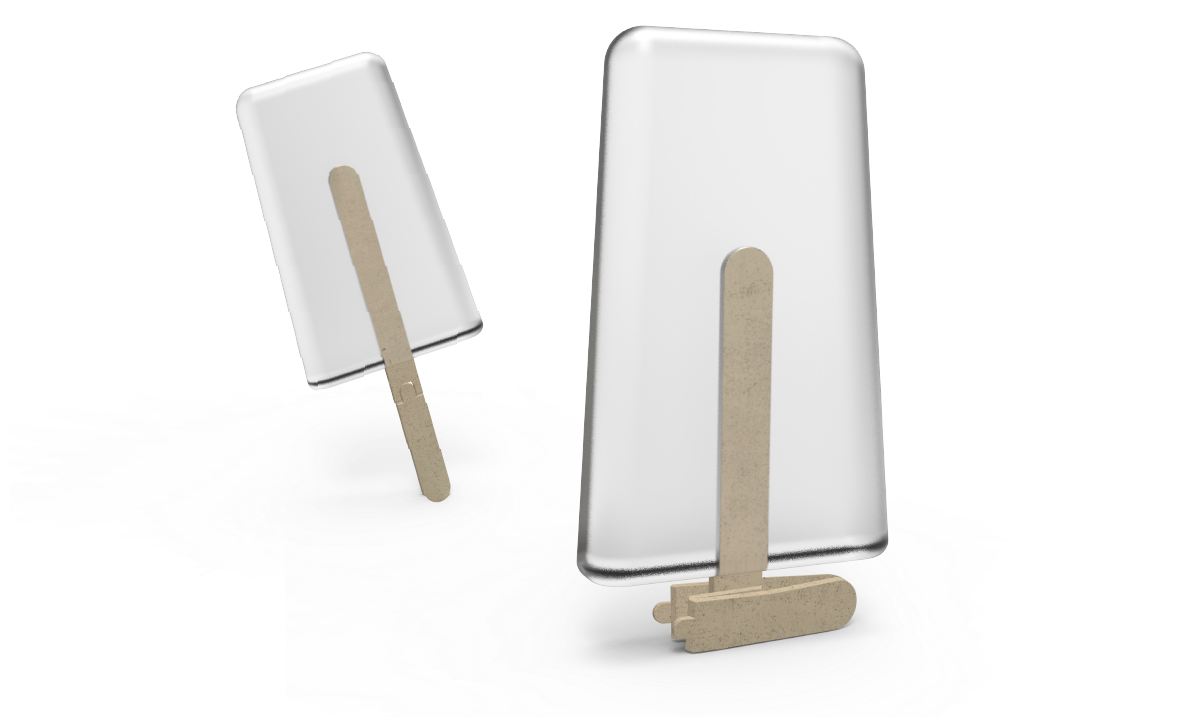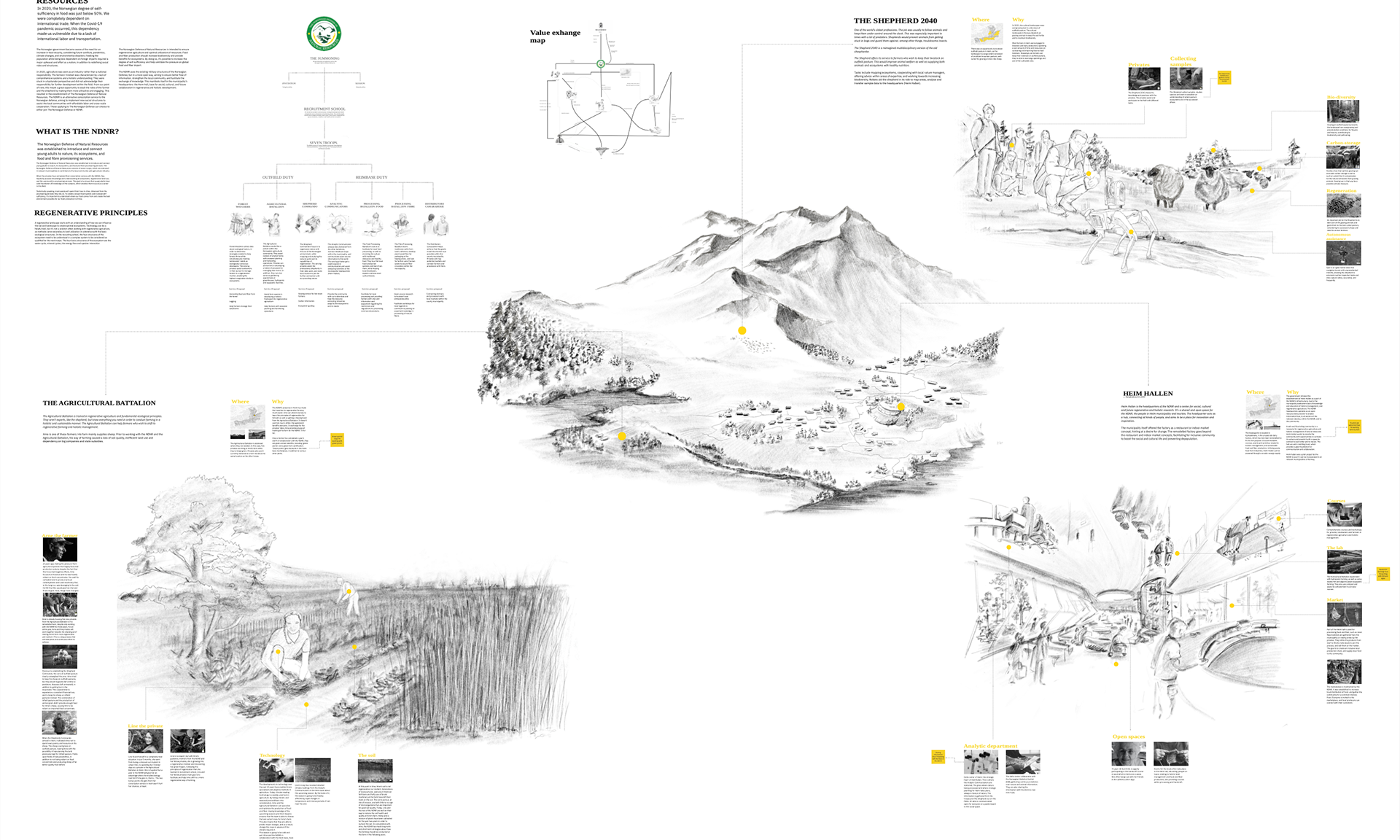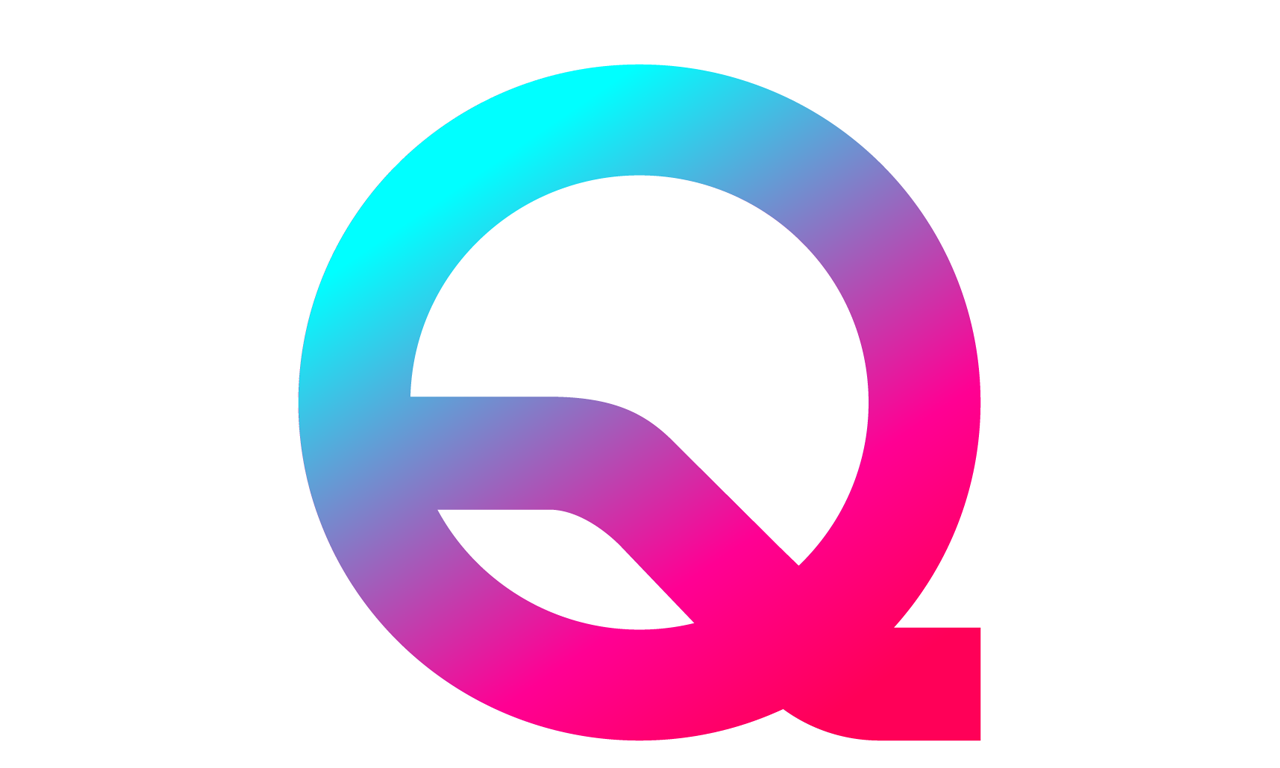Design for Design
Master thesis in Strategic design — Spring 2024 / 5 Months
with Ida Sofie Mahle
Supervisors: Joakim Formo, AHO &
Henry Stephens, Snøhetta Architect
Supervisors: Joakim Formo, AHO &
Henry Stephens, Snøhetta Architect
Read full report here
This diploma is based on design principles and methods from strategic design. The intention has been to explore the future of design practices, such as possibilities and challenges in directing design practices towards complex planetary challenges.
The result of this diploma project focuses on democratizing design outcomes through a co-creative infrastructure which various design practices and projects can utilize to collectively address and navigate complex global challenges.
This project aims to support designers and studios. It is a possibility exploration rather than focusing on one solution.
This project result is visualized through the structure below, consisting of four co-creative meeting points: missions, consensus, visions and continued processes - these steps have been iterated, tested and explored throughout the project to reflect the findings gathered through our process.
All design processes have this basis to some extent, knowingly or not. However, when the process is perceived as the focal point, this basis mentioned becomes reactive to the process instead of intentional. Instead, we wish to propose an alternative in which the structure around a process is held as equally valuable as the process itself.
Through this structure we can redirect focus on what is universal to a wicked problem, rather than what is specific to a project. This opens up for many new possibilities.
Our definition of complex problems
We created three core challenge hypotheses based on the research and insight, that functioned as basis for our concept development.
To create context and meaning of the visualized structure, we situated it into a platform.
This, to illustrate one of the more low-threshold ways this idea could be implemented. The four steps are suggested through an independent platform to co-create missions and visions, an open medium platform to create consensus (shared understanding of reality), a discord channel for continued processes and lastly, an entertainment program to create collective engagement for visions.
These are aspects that have the potential to democratize design outputs through shared reference and project starting points. It aims to redirect focus to what is universal to a problem, rather than specific to a project. Ultimately we believe this may open up for more collaboration, collective learning, impact, long term processes and meaningful dialogue towards how we might address wicked problems facing the world today.
Here is a sneak peek of some pages from our report, from our motivation and process, to our concepts and their contextual suggestion for implementation.
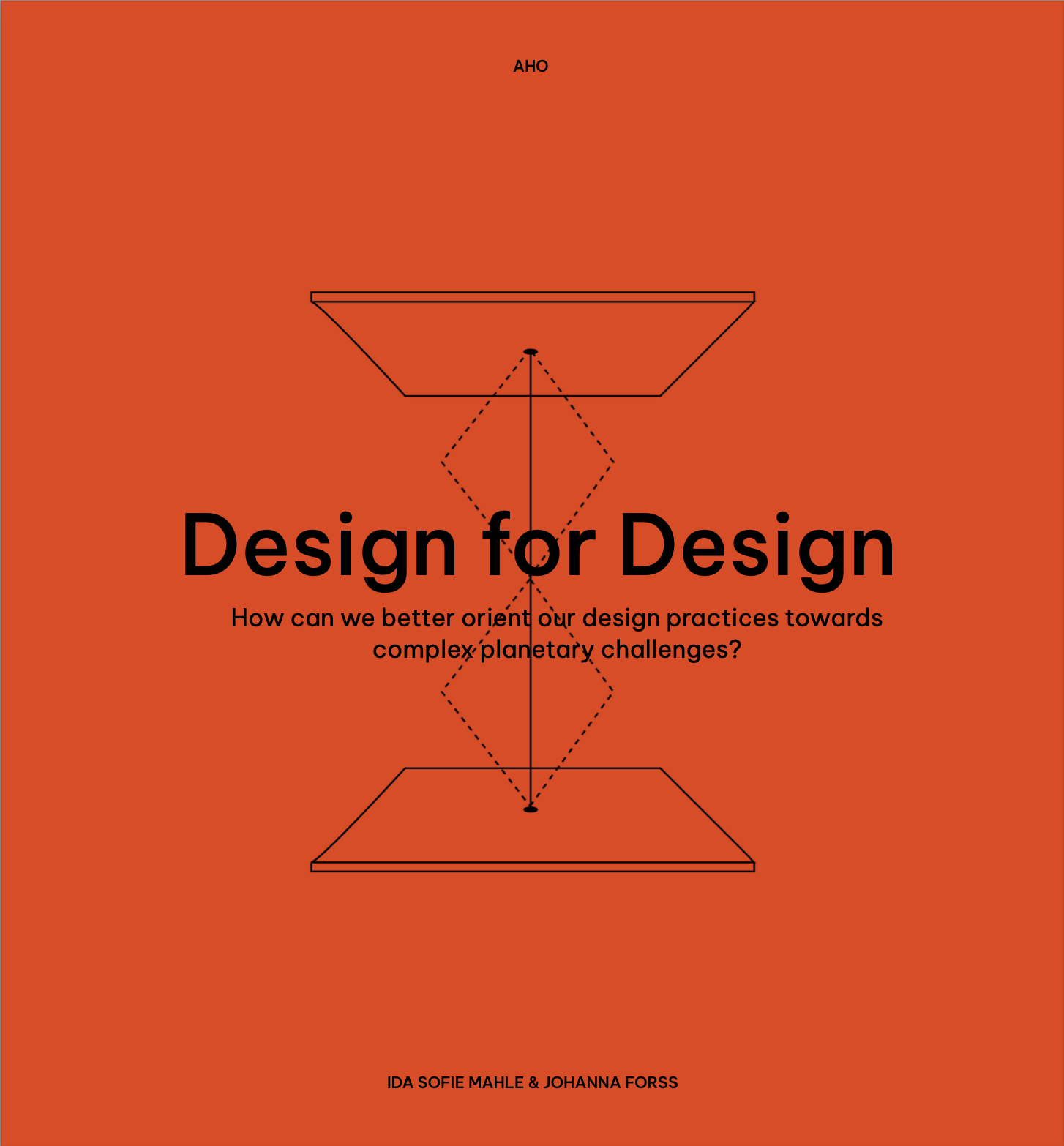
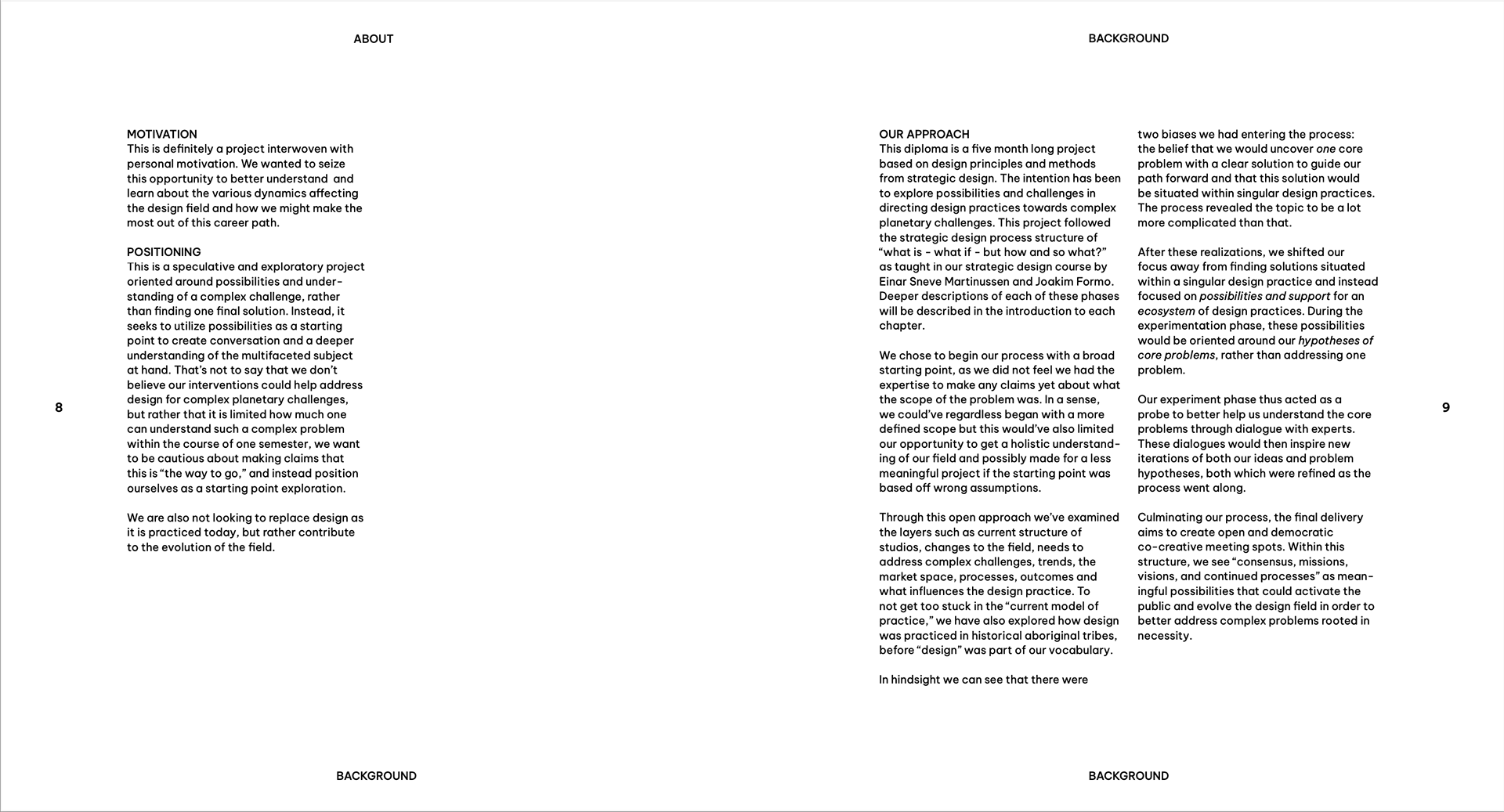
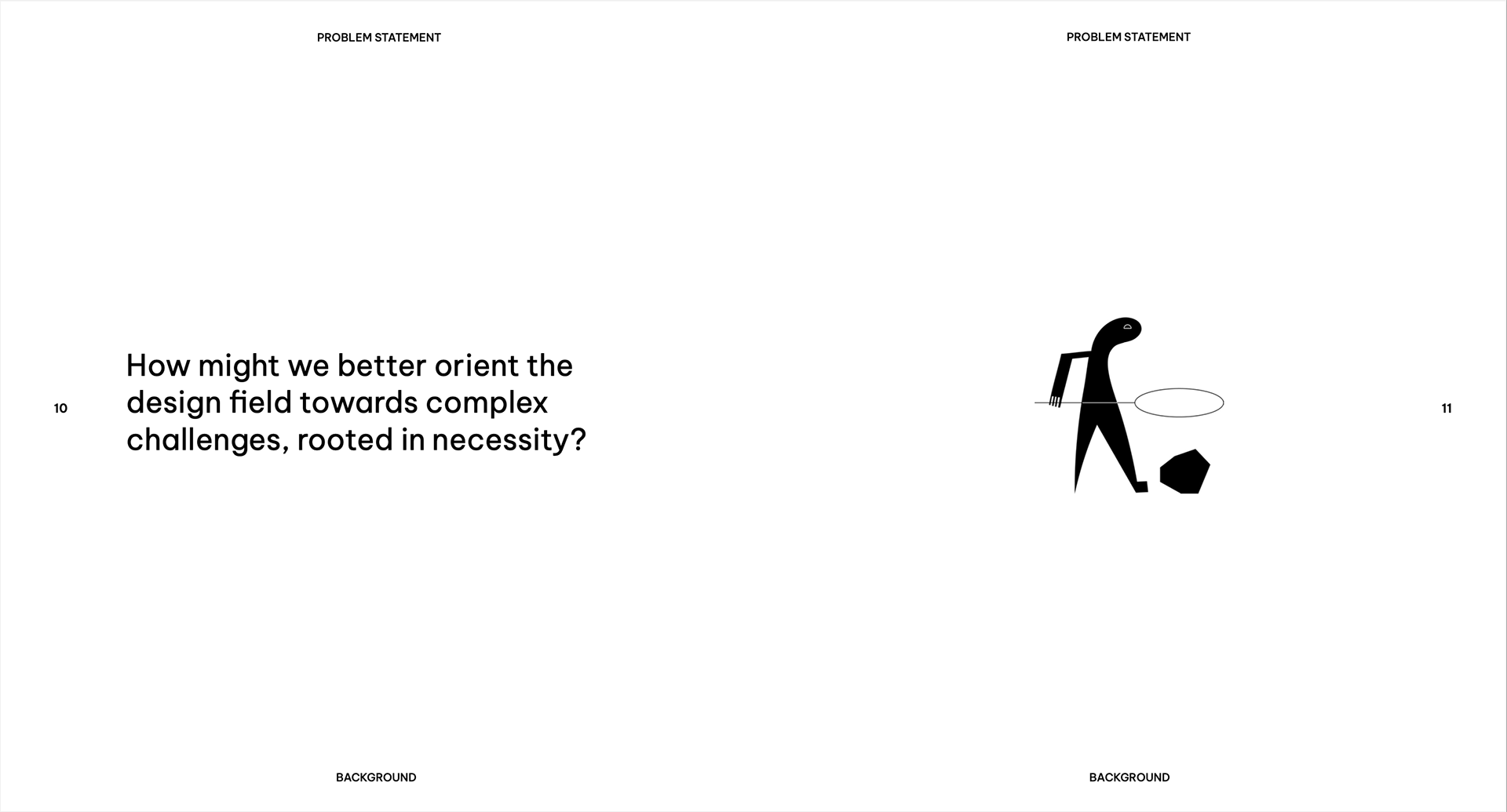
Our driving question
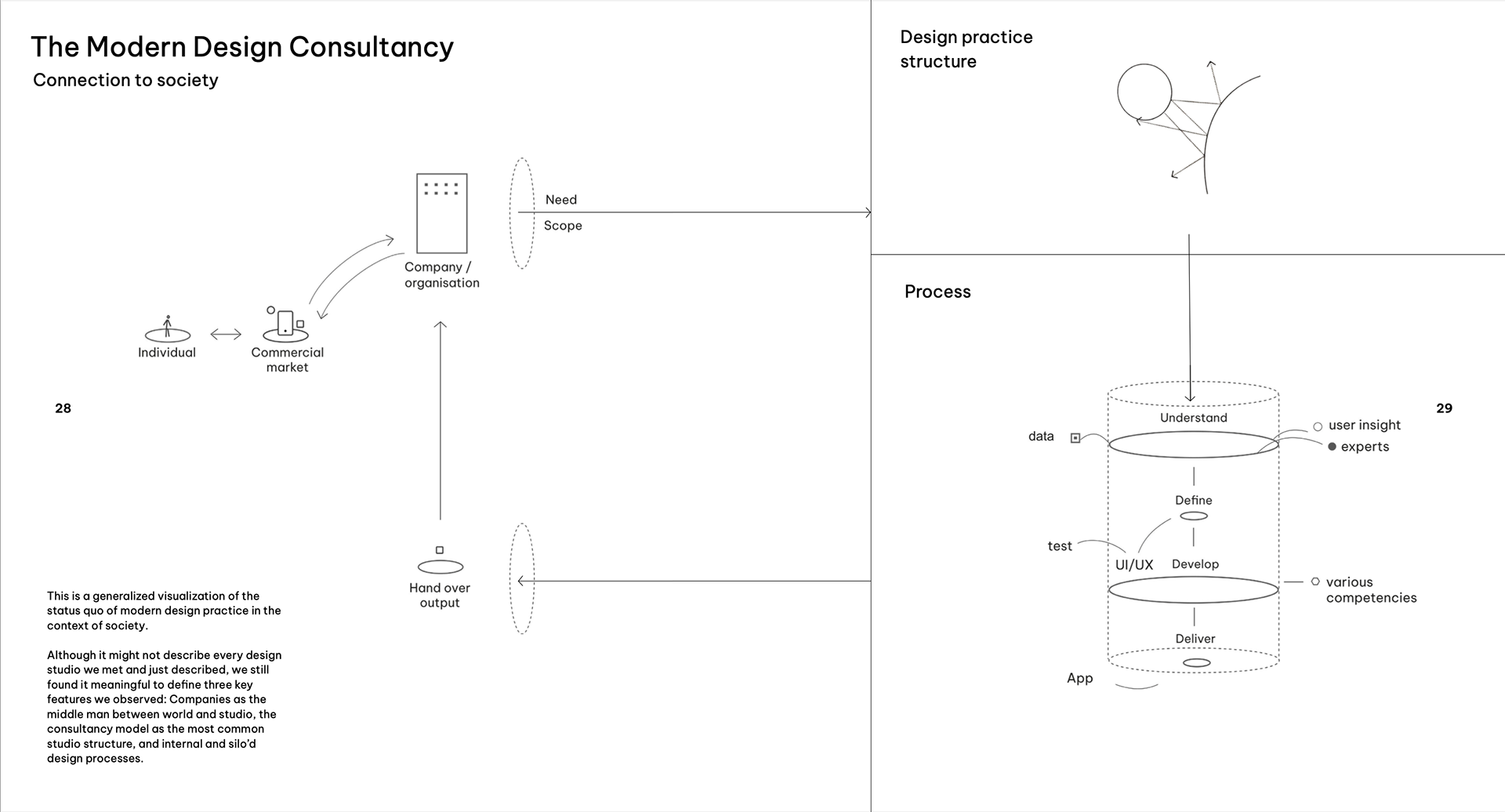
The modern design practice, in three sections - driven by capitalistic market dynamics
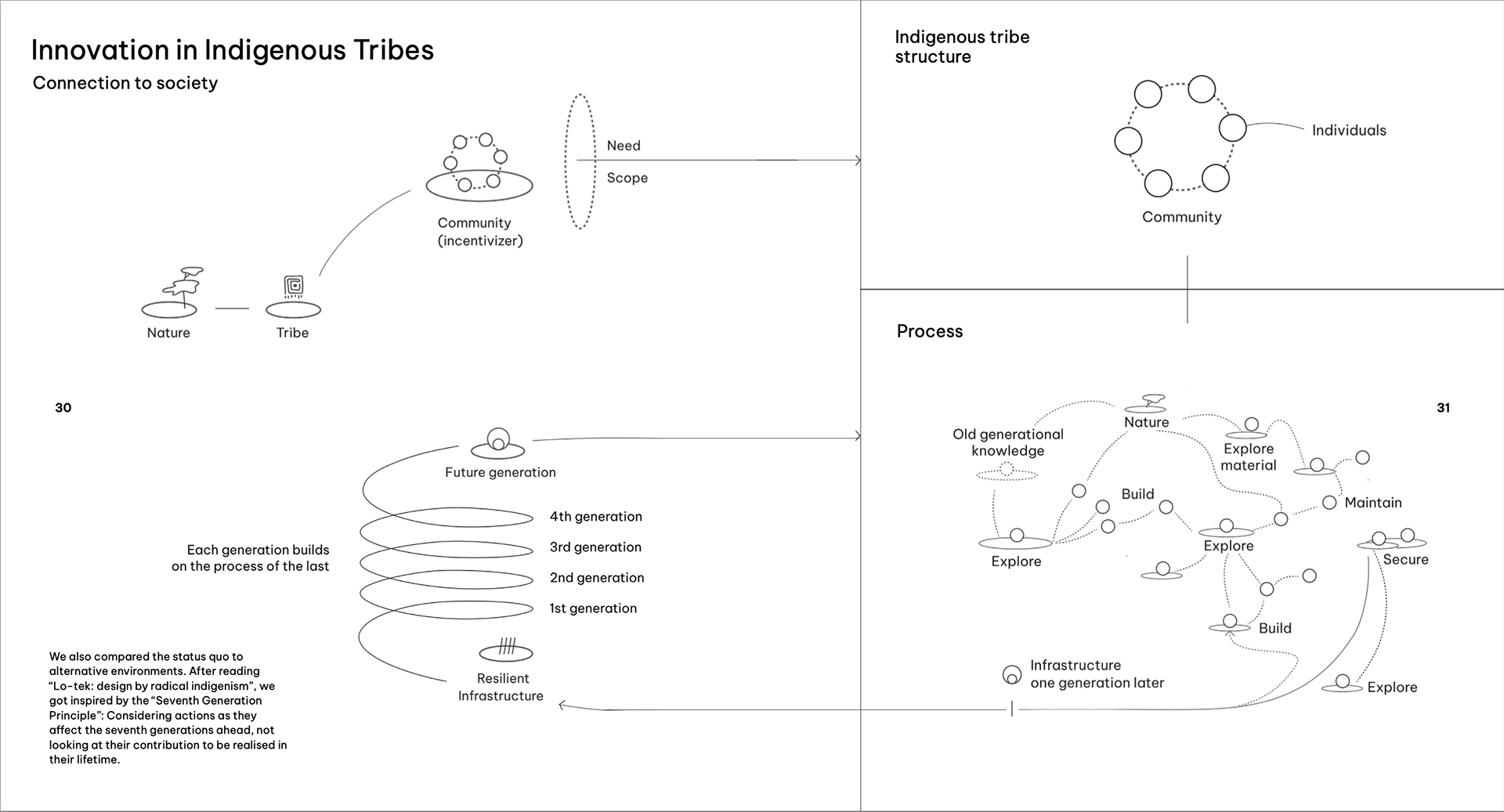
Intervention in indigenous tribes and long-term collective processes, continued in multiple generation
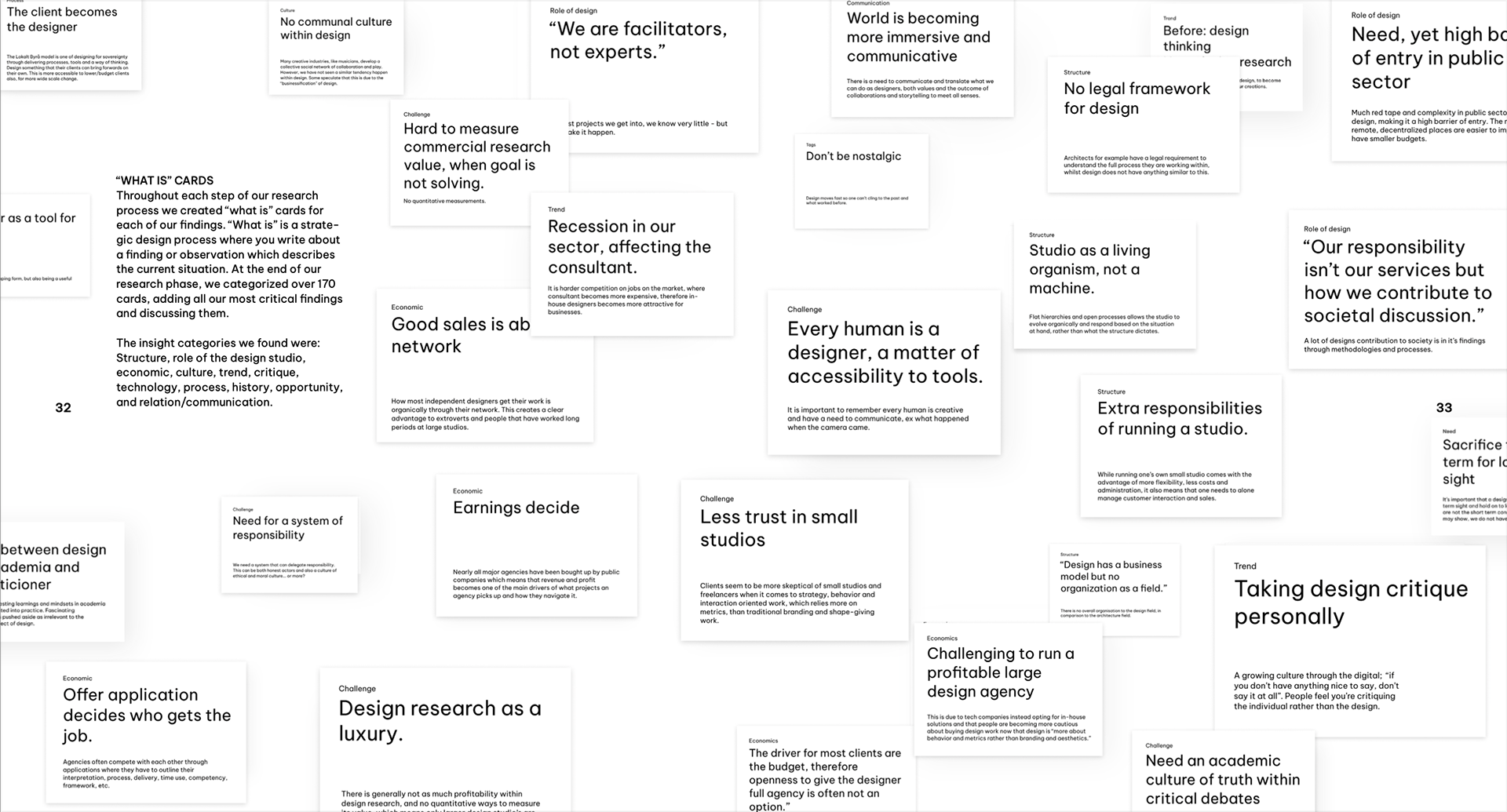
First, we explored what the current situation looks like today, and created over 170 "What is findings", all based on interviews with the experts, readings and desktop research.
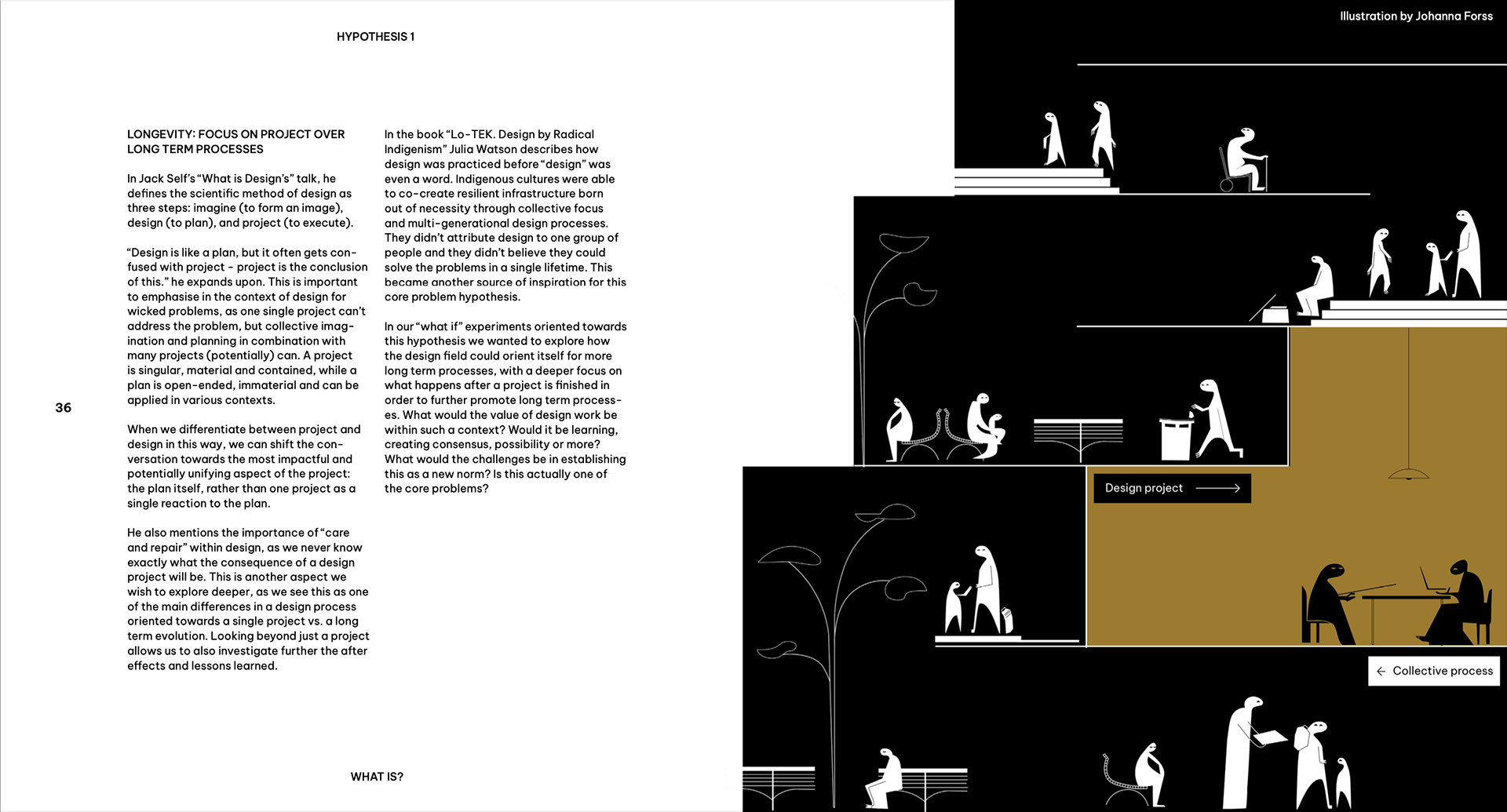
Core challenge hypothesis 1
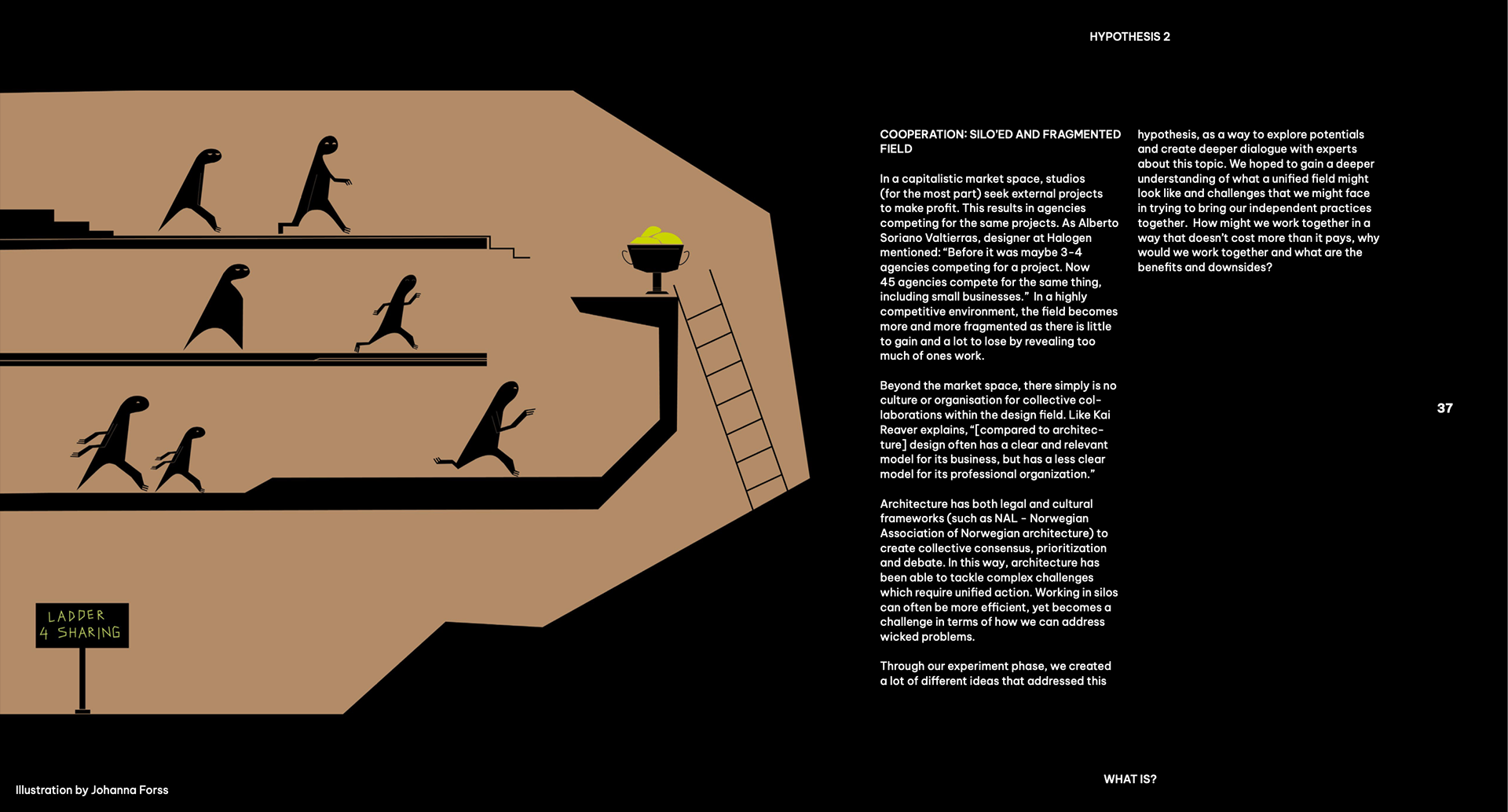
Core challenge hypothesis 2
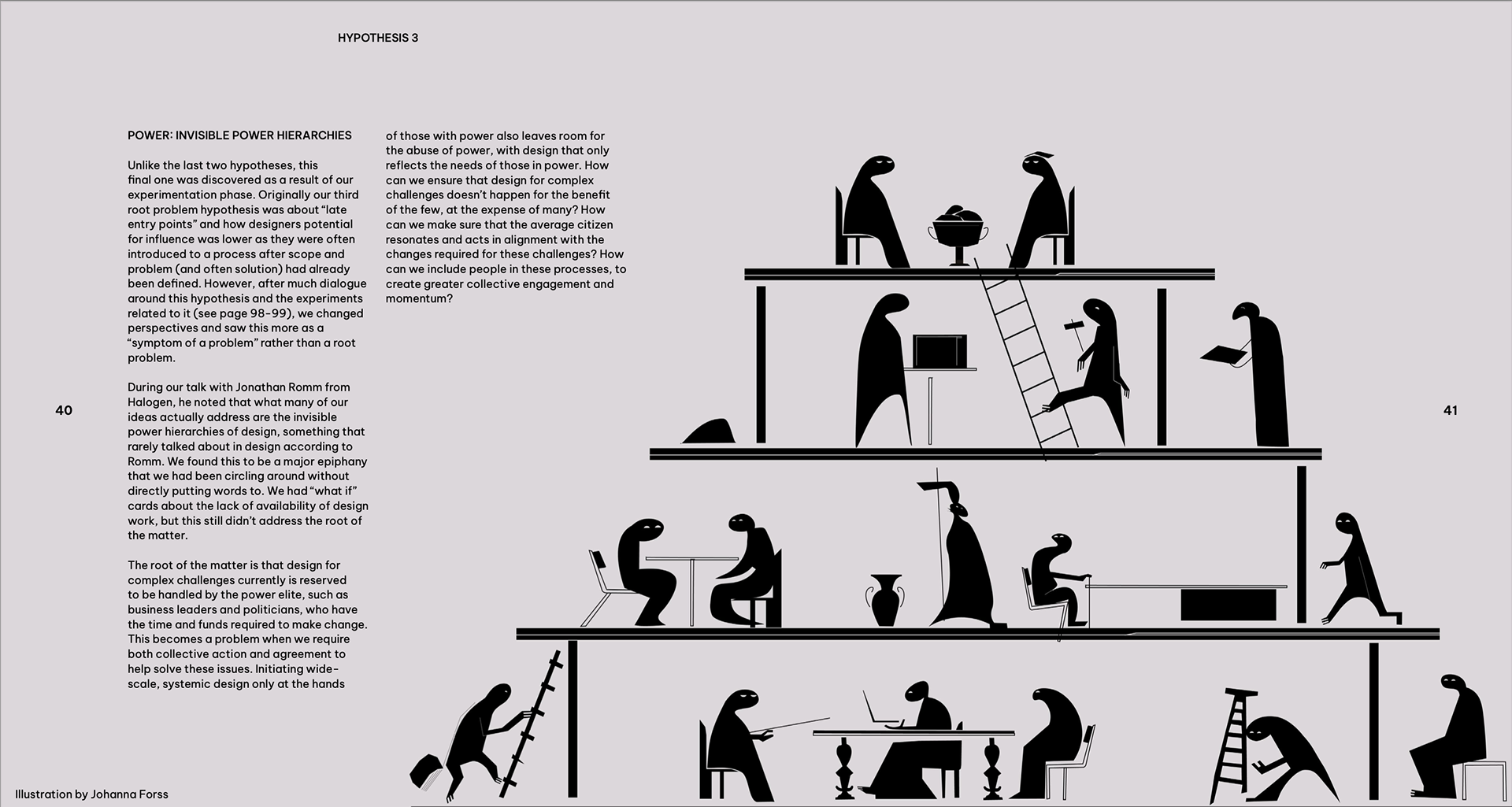
Core challenge hypothesis 3
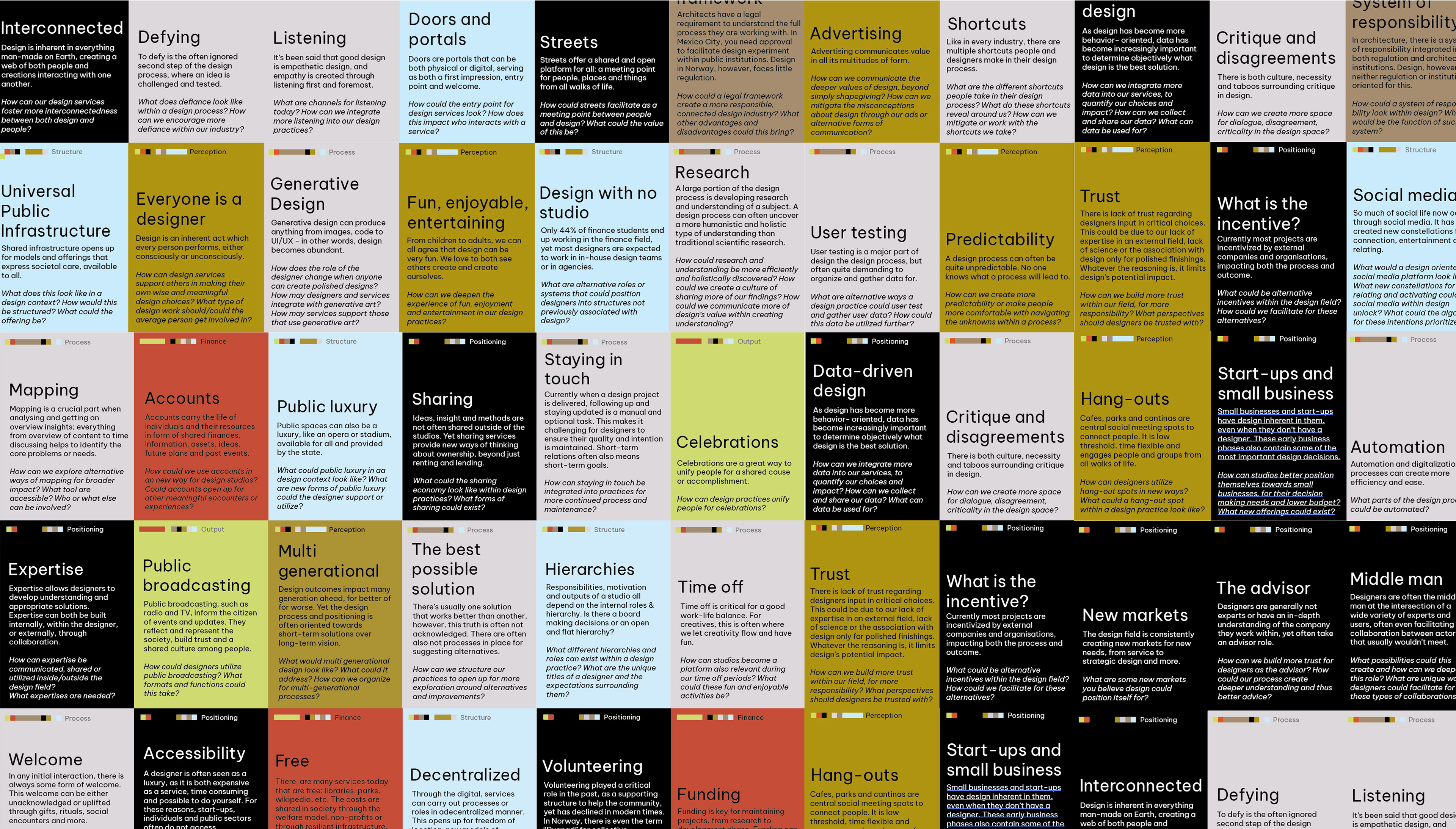
Micro-briefs Cards, a tool to trigger new ideas during our workshop
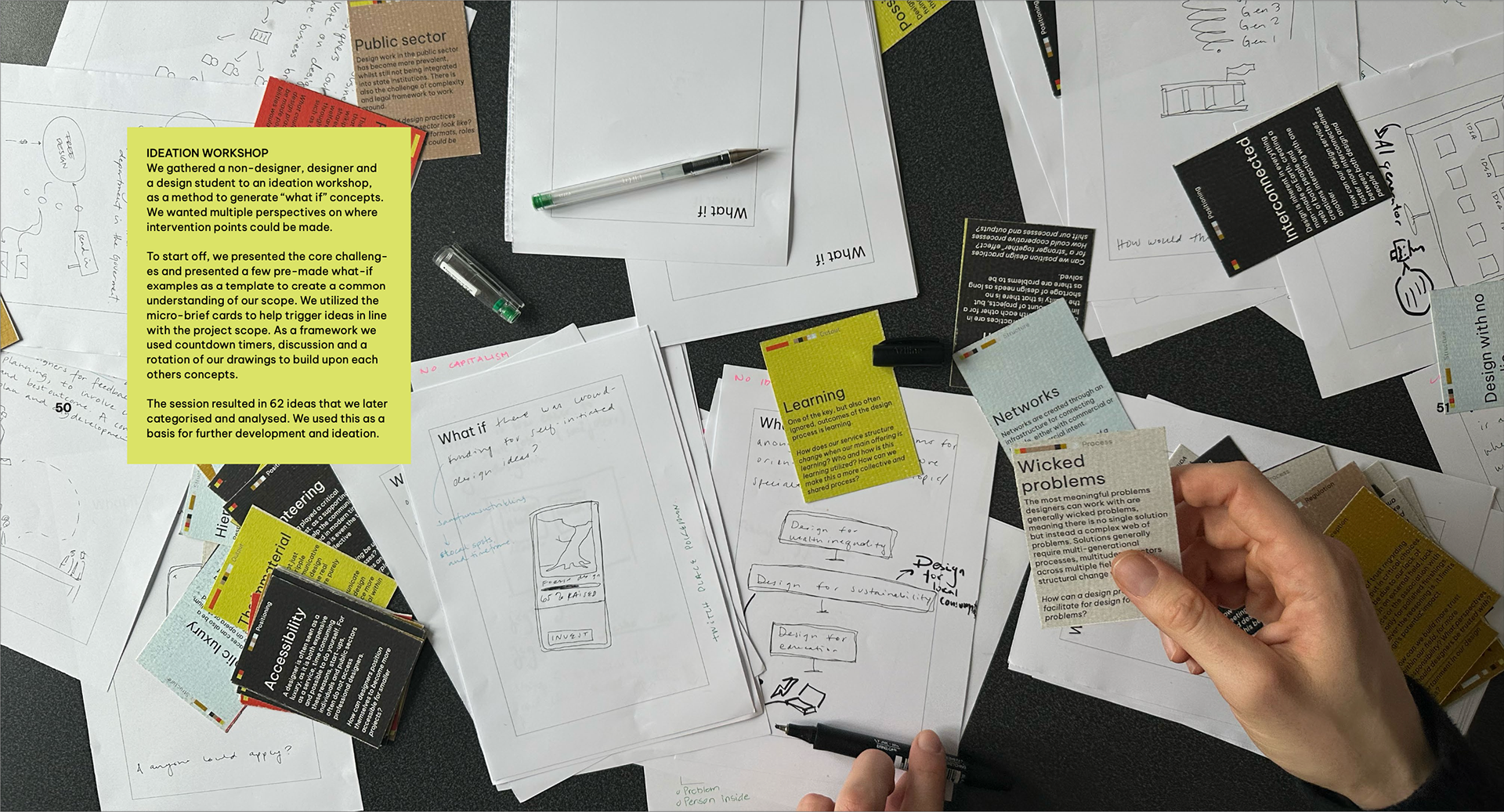
Workshop
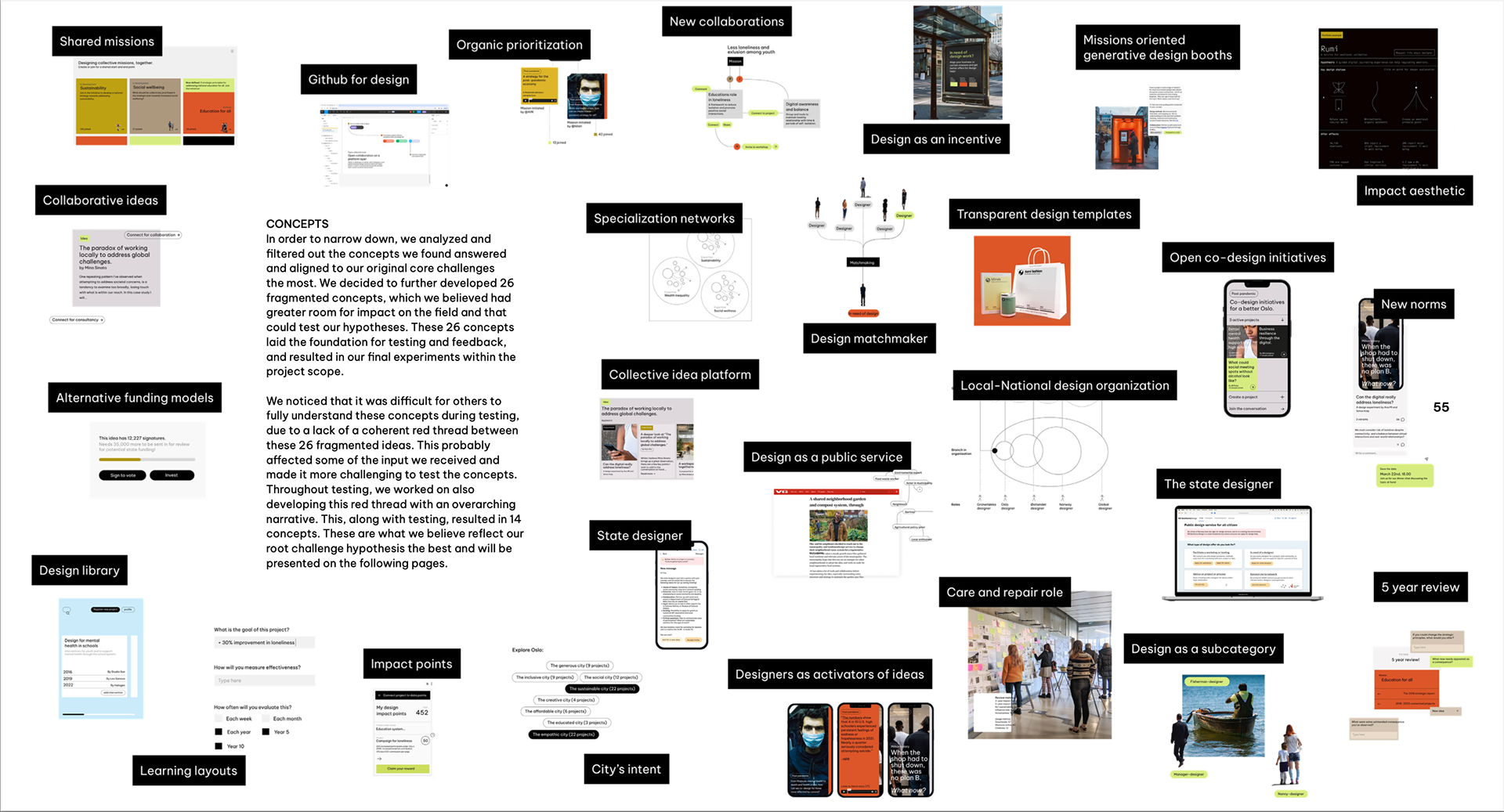
Concept development and testing
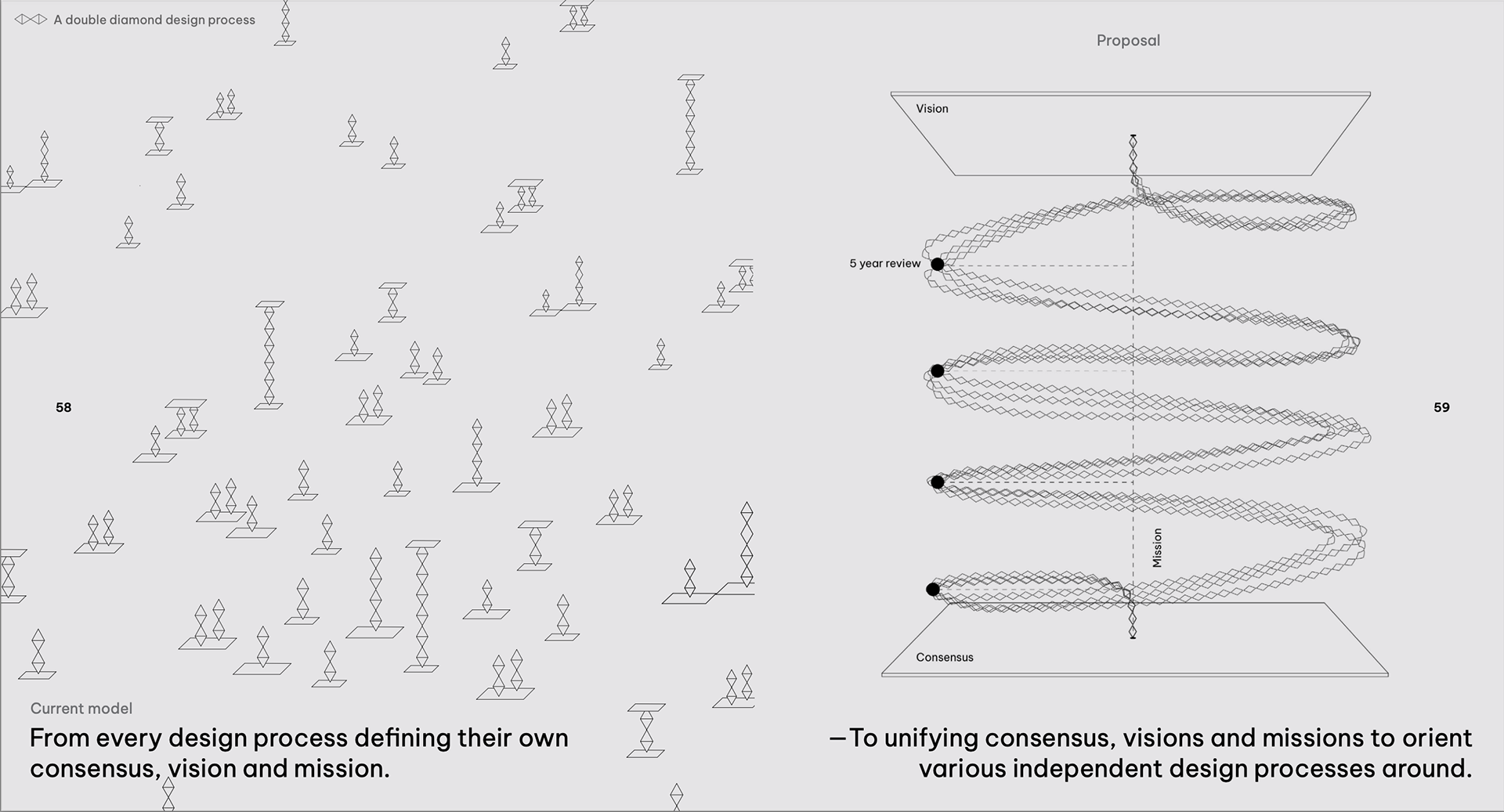
The core shift our concepts explore
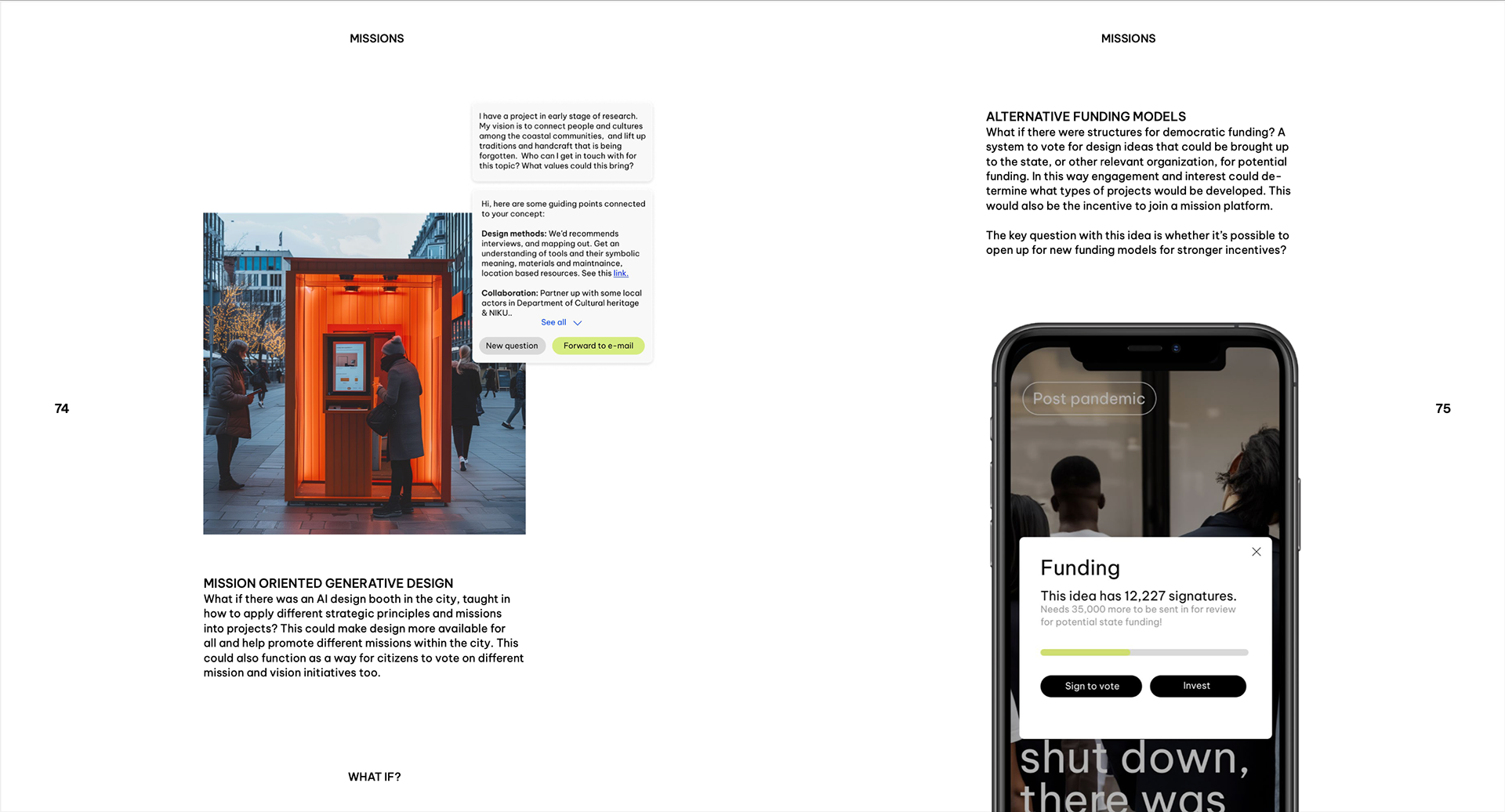
Concepts
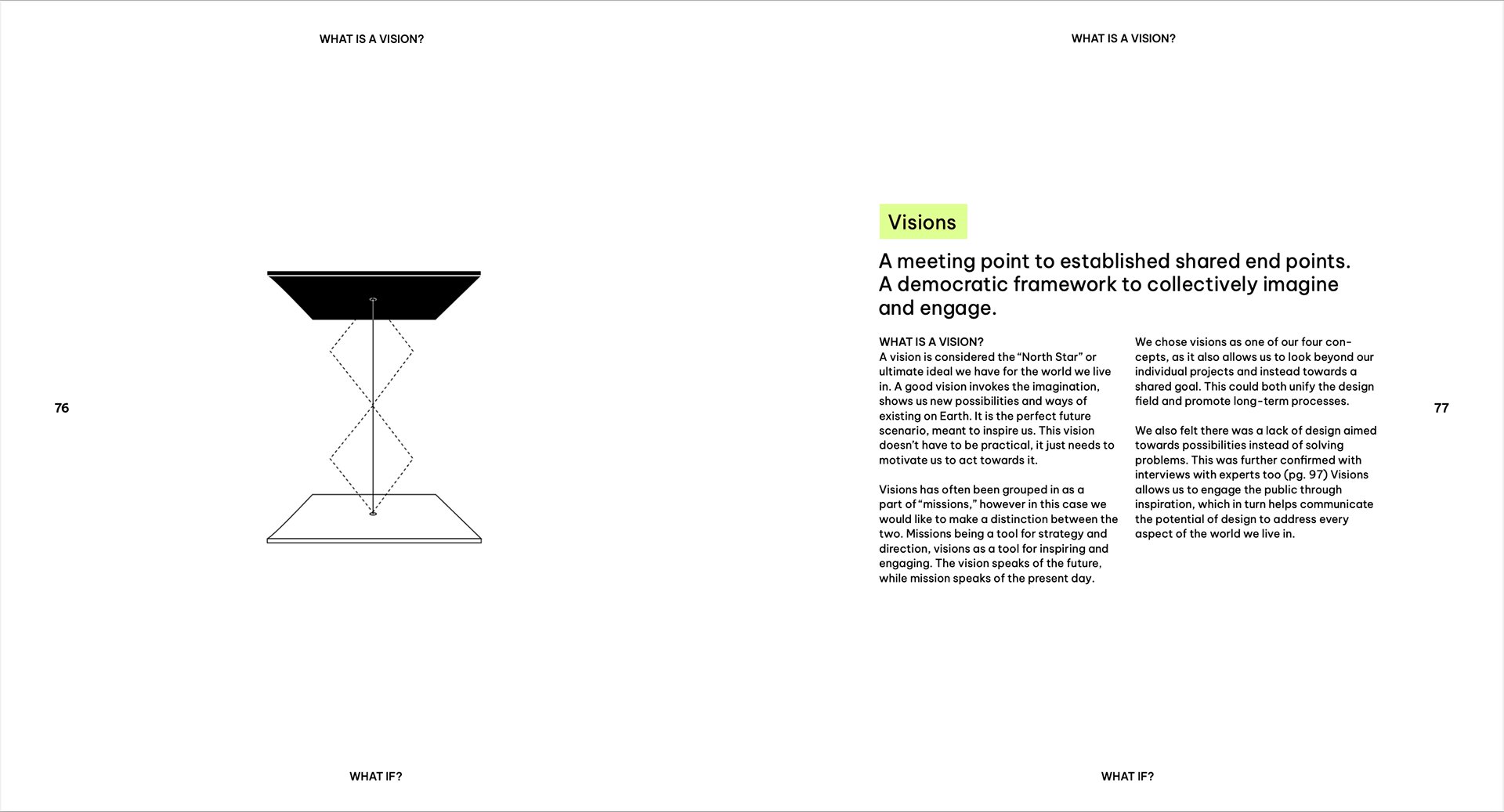
Our definition of "Vision" in the projects context (We also have one for Mission, Consensus & Continued Processes)
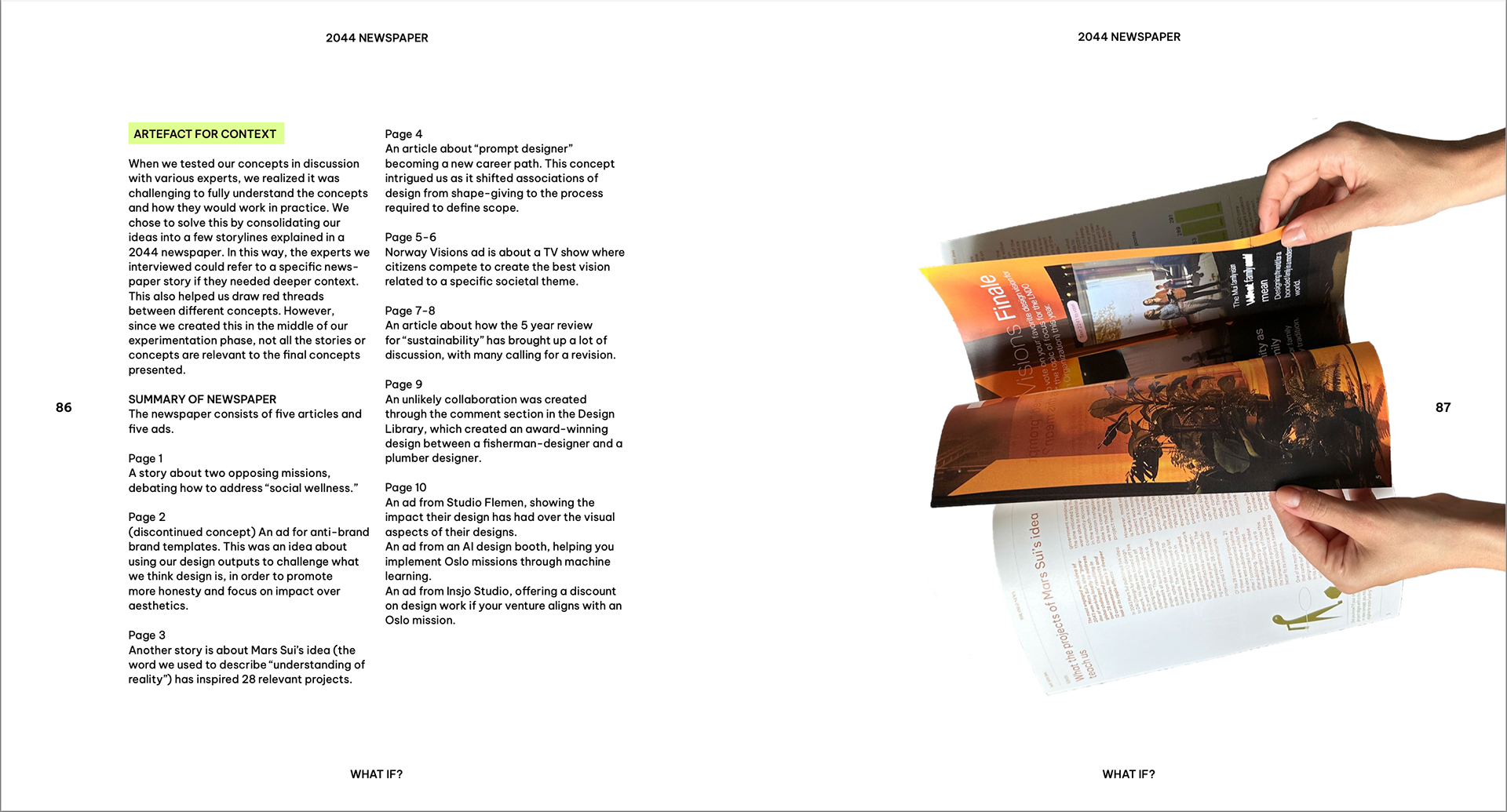
Our Newsletter Artefact, culminating our fragmented concepts into future scenarios for more context and meaning
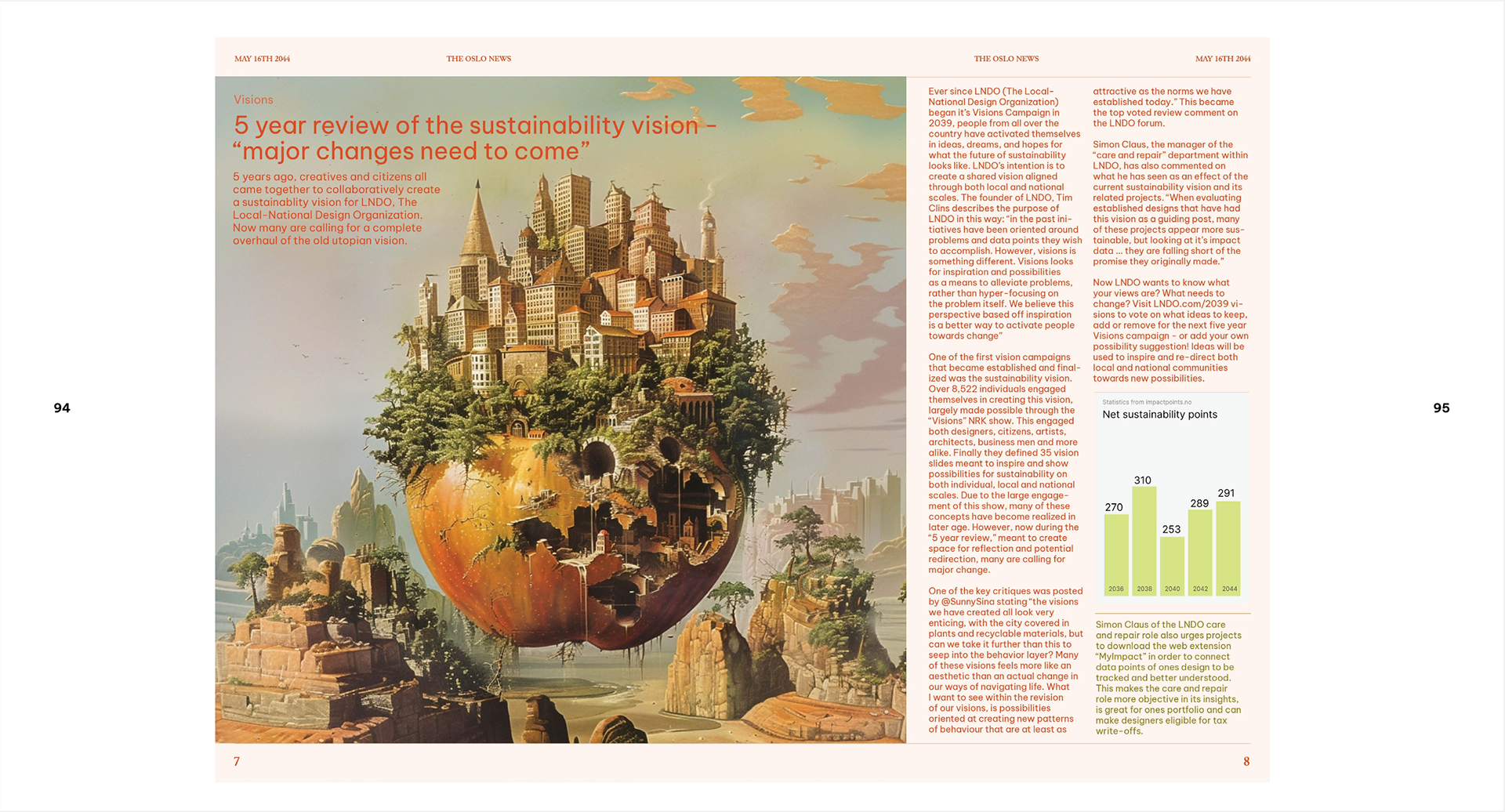
Newsletter example of concept "Five year review" and "Visions"""
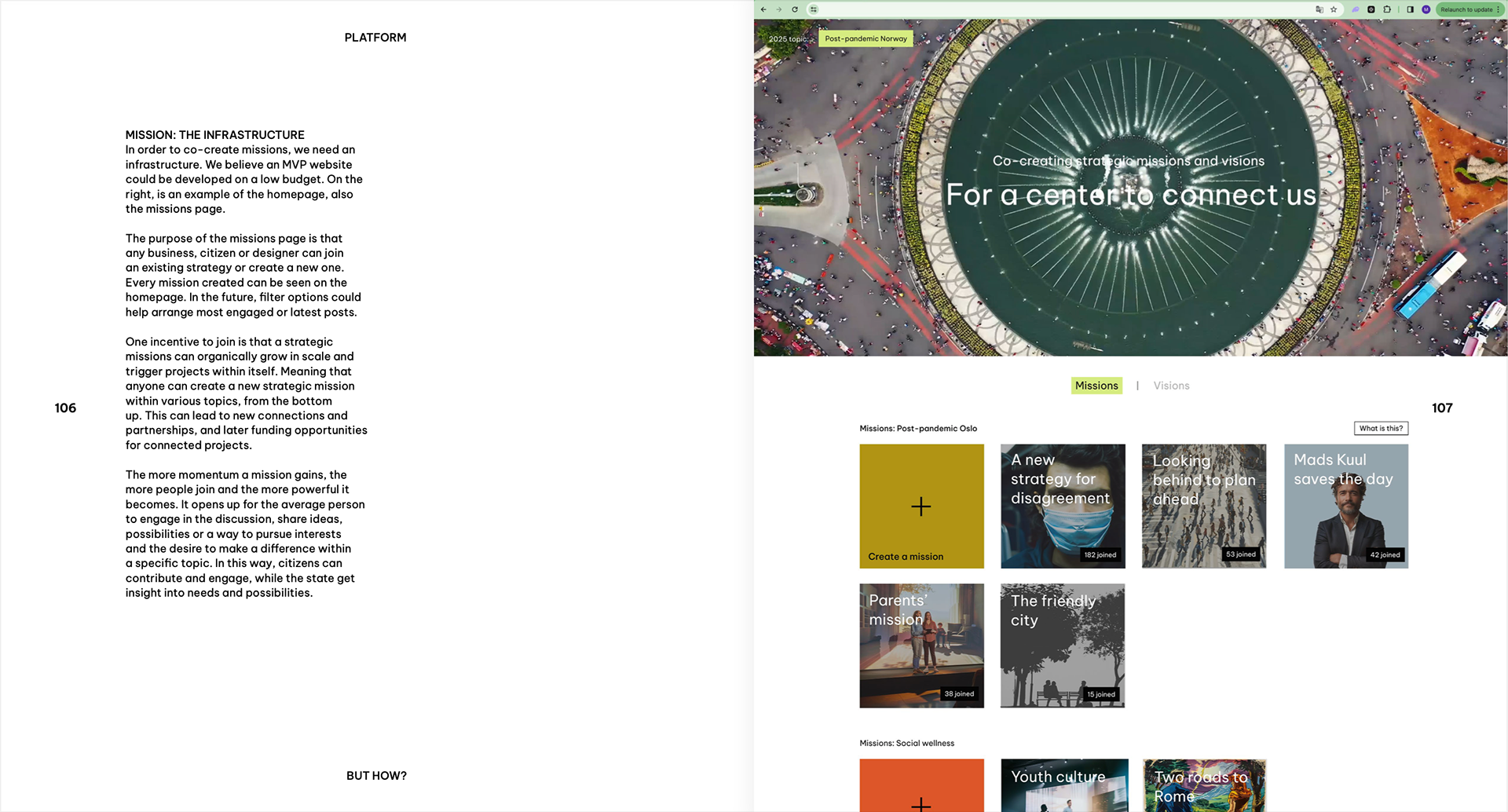
Our final proposal put in context of Norway: The Mission platform
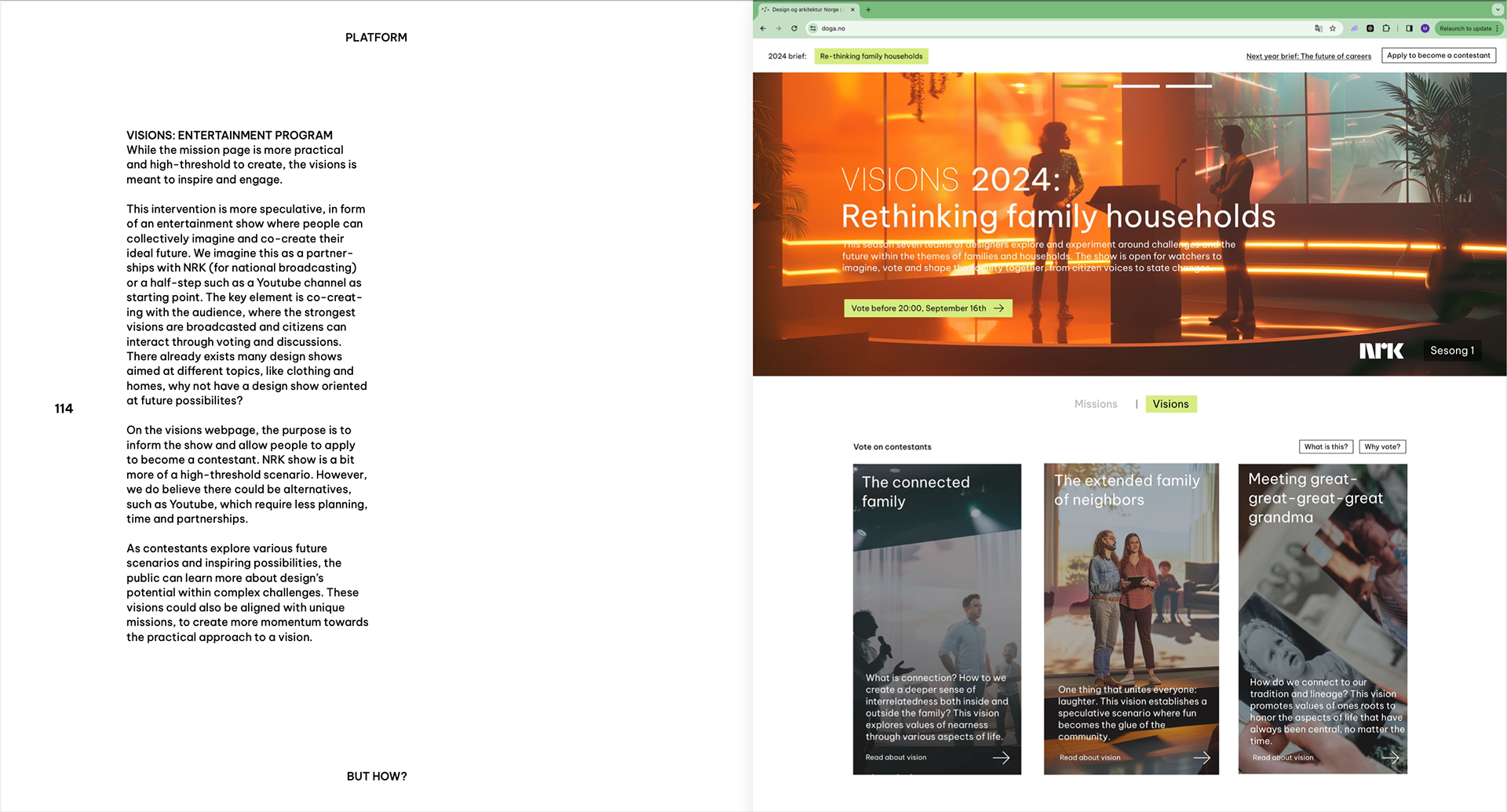
Our final proposal put in context of Norway: The Vision platform
